#understand and influence plants and animals
Text
Paradigm Time! - What is a Paradigm?
TL;DR: Paradigms are how you make sense of magic and how it fits into the world in your experiences. They aren't right or wrong and they often change!

Paradigm: a philosophical or theoretical framework of any kind
Note: There are a few different definitions of paradigm depending on the field you're talking about. In the case of magic, we are using the definition above.
Paradigms are essentially how you make sense of the world around you. In magic, these paradigms are ways in which someone understands magic, how it works, and how it is used in the world.
Other people have used words like “framework”, or “beliefs/belief system”. Whatever you call it is fine!
Paradigms can and often do change over time, maybe you used to believe “xyz”, but now you’re thinking more “abc”. This doesn't make everything that you did while you believed in “xyz” invalid, it just means you understand it differently now.
Since paradigms are basically belief systems, they are not factual and are not “right” or “wrong” they simply are. One person may disagree with another, who may disagree with someone else, who may have similar but slightly different experiences than another. More than anything else, paradigms are fluid.
Furthermore, paradigms are fluid not just within ourselves but within communities too!
Here’s an example:
Say everyone in x community generally agrees that crystals hold power.
However, some may believe that crystals only hold power once charged, like how a cup can only hold water once filled.
While others may believe there is an inherent power within the crystal. Others in turn might believe that some crystals hold power and others don’t.
Yet they all still believe the paradigm that crystals hold power.
Now let’s take a few paradigms about correspondences as another example.
In one witch’s paradigm, they might be used as ingredients that hold inherent power.
-> “I am using the magical properties inherent to basil to power my money jar.”
In another, the correspondences are spirits that you petition to help power the magical working.
-> “I am working with the spirit of basil and asking them to help with my money jar.”
In another, the correspondences are offerings that you give to a spirit that you’re petitioning.
-> “I am using basil as an offering to a spirit to help with my money jar.”
In yet another the correspondences are spirits that you don’t even need to petition, their very presence influences the spell.
-> “I’m using basil in this spell because the spirit of basil will help influence my money jar.”
Here are some other examples of paradigms:
Spirit-Working sorcery, where spirits are petitioned for aid, and the strength of workings tends to depend on the depth of the relationship developed with the spirit, and/or success in evoking them in that instance.
Thinking or focusing on your intent in your head is fine, writing it down is better, but speaking it aloud is best.
Energy is the battery of magic. Magic is the change caused by whatever you’re doing but energy is what powers that change, be it a spell, prayer, whatever.
Gods can be called upon and petitioned for help with a spell, but the relationship between the caster and the god will determine the strength of the spell or their willingness to help. Otherwise, you can try to appeal to them with offerings to make up for the lack of a relationship, though their help will still not be as strong as if there were a pre-existing relationship.
Inanimate objects do not have spirits, but animals, plants, fungi, and humans do.
Again, these are not universal paradigms, they are just examples. I honestly don't think there even is a universal paradigm when it comes to magic and witchcraft.
Thank you to @windvexer @friend-crow @stagkingswife and @rose-colored-tarot for your help in writing this post!
225 notes
·
View notes
Text
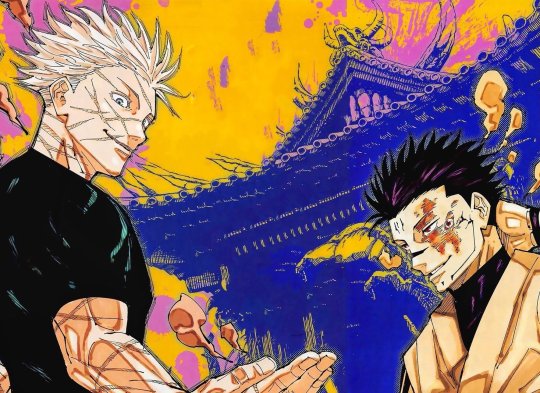
Gonna lose?! It’s Gojō Satoru!!
Karma and consequence in Jujutsu Kaisen
With the release of chapter 235 of Jujutsu Kaisen, the King of Curses has been defeated and Gojō Satoru has cemented his title as the 'Strongest’. The war isn’t over yet, but the battle is won, and I think the outcome of this fight is by far the most interesting for both characters.
Truthfully, at the start of the Shinjuku Showdown arc, I wasn’t particularly rooting for Gojō or Sukuna to win. However, as the fight developed (alongside the release of the anime adaptation of Hidden Inventory/Premature Death), I found myself becoming more and more invested in Gojō Satoru as a character and, consequently, theorising about what a ‘satisfying conclusion’ to his story might look like.
Shortly after the release of chapter 232, I saw an interesting post suggesting that ‘gain and loss’ is the theme of the Gojō vs Sukuna fight. Of course, ‘Gain and Loss’ is the title of chapter 221 when Gojō finally gets out of the Prison Realm only to learn that Sukuna has taken over Megumi’s body. I’d like to go a step further and suggest that ‘gain and loss’ — and by extension, karma and consequence — is actually a key theme of Gojō’s character (and maybe even Jujutsu Kaisen on the whole).
For full disclosure, I wrote about 90% of this before chapter 235 was released, operating on the belief that Gojō would eventually win this fight. It is a long post, so buckle up and let’s get into it!
Gain and loss in Jujutsu Kaisen
The idea of gain through loss was developed very early on in Jujutsu Kaisen with the introduction of binding vows. From Nanami’s ‘overtime’ to Sukuna's open barrier domain, a self-imposed binding vow offers a sorcerer an advantage in combat in return for an increased level of risk. In other words, sorcerers can ‘gain’ strength in exchange for a ‘loss’ of security. When it comes to binding vows, the bigger the risk the bigger the reward.
The idea of gain through loss was further developed through the introduction of Heavenly Restriction. Similar to a binding vow, a person with a Heavenly Restriction is ‘gifted’ with enhanced abilities in one area in exchange for limitations in another. However, unlike a binding vow, Heavenly Restriction exists from birth (although it remains unclear whether it occurs due to mere chance).
There are numerous powerful examples of both binding vows and Heavenly Restriction throughout the series. For Gege Akutami, they are key to maintaining a balanced power system where intelligence and tactical thinking can lead an underdog to prevail in the face of a more powerful opponent — think Yūta beating Getō or Toji beating Gojō. Through these mechanics, we can deduce that understanding gain and loss, give and take, risk and reward — however you want to put it — is crucial to mastery of jujutsu sorcery.
Naturally, if gain and loss are embedded in the laws of the Jujutsu Kaisen universe, it makes sense that the theme exerts a heavy influence over the narrative, too. Of course, consequences are an important way to create compelling characters in any story, but this rings especially true for Jujutsu Kaisen which draws deeply on Buddhist themes and traditions.
In Buddhism, karma is not a deterministic system of retribution, but the natural law of cause and effect. It is directly referenced in Jujutsu Kaisen when Fushiguro Megumi explains his personal ideology using ‘因果’, a Japanese Buddhist term meaning ‘karma’ or ‘fate’ which can be more literally translated as ‘cause and effect’. The second kanji means ‘fruit’, hinting at the underlying agricultural metaphor behind karma in Buddhism: plant a seed, later receive a harvest — or, to use a saying derived from another religion with an important role in Jujutsu Kaisen, ‘you reap what you sow’.
However, an important characteristic of karma which is commonly misunderstood is that the relationship between a cause and its effect is not necessarily linear, but rather part of an intricate network that spans past, present, and future. In other words, the ‘consequences’ of one’s actions might arrive much later.
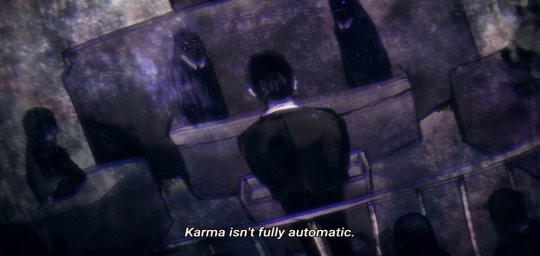
This can lead to mistaking the effect of one cause for the effect of another, creating a reality where ‘bad’ things happen to ‘good’ people and vice versa. The resulting circumstances may make it easier to do ‘bad’ deeds but, importantly, the freedom always remains to choose the path of ‘good’.
Thus emerges a system where liberation from suffering (in Buddhism, the endless cycle of rebirth known as samsara) is not determined by the judgement of some higher power, but by an individual’s continued choice to do ‘good’. In other words, you can create your own destiny, but only if you understand karma.
The beginningless karmic cycle is rooted in actions performed in ignorance. Therefore, breaking free of it — enlightenment — can only be achieved through knowledge.
Gojō Satoru: the embodiment of enlightenment
As a character, Gojō Satoru is symbolically tied to these concepts. We’re told that his birth altered the balance of the world, causing curses to grow stronger in response to the sudden injection of power into the ecosystem. However, while Gojō’s birth might be the cause of the imbalance, his very existence is itself the effect of something else.

Supposedly, the Star Plasma Vessel, the Six Eyes, and Tengen are all connected by fate. However, the term that Tengen uses — ‘因果’ — is the same one that Megumi uses for ‘karma’, suggesting a cause and effect relationship. This is confirmed when Tengen implies that the Star Plasma Vessel and the Six Eyes always appear in response to the merger — the irrepressible effect to the merger’s cause.
Kenjaku cannot contend with the immense strength of the Six Eyes nor the universal law of cause and effect. However, Fushiguro Toji, who possesses no cursed energy due to his Heavenly Restriction, is not bound by fate and is thus able to interrupt a cycle of cause and effect which has existed for at least a thousand years.
Tengen actually suggests that karma (因果) and cursed energy are one and the same so — if we take Tengen’s words at face value — Toji is an anomaly who is free from its bindings.*
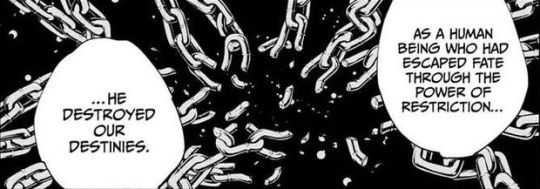
However, the characters whose lives he touches are not. Toji sets another chain of cause and effect into action when the events of Hidden Inventory lead to Gojō’s ascension to 'the Strongest'.
There is much debate in the fandom about whether Gojō’s moment of ‘enlightenment’ is legitimate, especially in light of his fight with Sukuna — the only other character associated with the phrase supposedly uttered by Buddha Shakyamuni at birth.
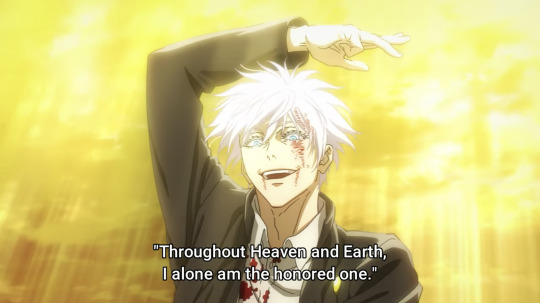
However, if enlightenment is understanding of reality that transcends conceptual thought, then Gojō Satoru is its physical embodiment in Jujutsu Kaisen.
His given name, Satoru (悟), is a verb meaning ‘to know’ or ‘to understand’, and the root of the Japanese Buddhist term for ‘enlightenment’. His innate domain — a representation of one’s innermost self — is a flood of infinite knowledge that constitutes the ‘truth’ of the universe. His Six Eyes are reminiscent of the all-seeing Eyes of Buddha or the Six Transcendental Powers or the Five Eyes — or perhaps all three!
Gojō is steeped in symbolism not only relating to Buddhist enlightenment, but to the founding Buddha himself, right down to his world-altering birth — the divine event which sets the modern-day story in motion.
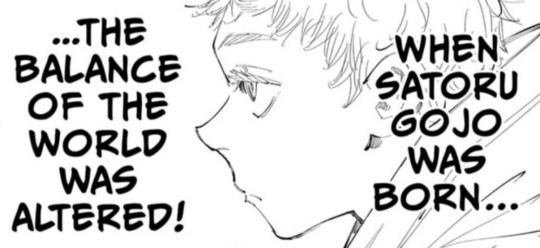
Although he may have spoken Buddha Shakyamuni’s words in a moment of euphoria, the suggestion Gojō had reached a higher state of being was never intended to be called into doubt. The pertinent question, instead, is why the unimaginable strength that accompanies his ascension to almost godlike status seems to bring Gojō more loss than gain — especially when, in a twist of irony, he was only able to gain that strength through loss.
‘The Strongest’ : an allegory for enlightenment
As the two strongest sorcerers battled it out in Shinjuku, the question on everyone’s lips during the weekly chapter discussions was, ‘Who will win?’ However, Jujutsu Kaisen has already established that ‘winner’ is not necessarily always interchangeable with ‘strongest’. Perhaps that’s why, in the aftermath of the fight, the discussion has turned to arguments about which character is the strongest instead — from cursed technique to battle IQ.
Even now, we don’t know much about Sukuna’s abilities nor his character, so it’s always been difficult to accurately judge his strength against Gojō’s. However, a surprising number of people went into this fight believing that Sukuna would win without much trouble.
Some made the reasonable argument that ‘the strongest sorcerer in history’ using the Ten Shadows technique while inhabiting the body of his dearest student presented a no-win situation for Gojō. Others made the much less reasonable argument that Gojō’s claims about his strength were little more than arrogance born from a cushy life in an era of ‘weak’ sorcerers.
Indeed, Sukuna himself echoes that sentiment in chapter 230, going as far as to call Gojō ‘unenlightened’ (凡夫) — before being immediately humbled.
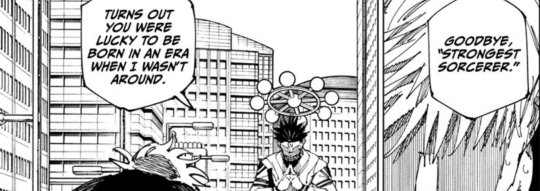
This isn’t the first time that Gege Akutami has directly challenged readers’ assumptions through his characters. However, Gojō in particular lends himself to reader speculation, because Akutami deliberately makes it difficult to know the character by maintaining a narrative distance from him that mirrors his Limitless technique.
This leads to a wonderful phenomenon where the reader falls into the same trap as the characters in the series by assuming that, while other sorcerers are struggling dreadfully, Gojō is having an easy time of things — because that’s what it looks like most of the time. Nanami might be right when he suggests that Gojō could take care of everything by himself. However, just because he could do it, does that mean he should?
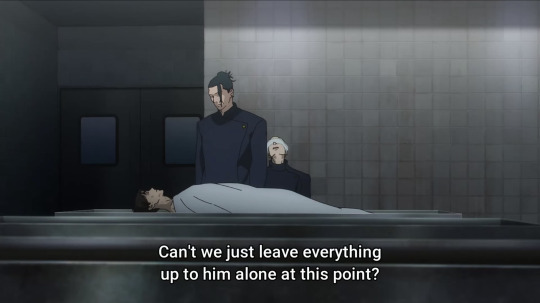
The problem is, with Gojō kept at a distance, it’s easy to forget how he became 'the Strongest’ in the first place. It’s true that, even before he becomes a fully realised Six Eyes user, Gojō’s abilities dwarfed those of any other living sorcerer. For people like Getō and Megumi whose techniques require a very steep learning curve to master, I can imagine that it feels like Gojō’s unimaginable strength was handed to him on a silver platter at times.
However, both things can be true: Gojō was born with innate strength that most sorcerers can only dream of and Gojō is an exceptional talent in his own right.
We all saw the suffering and sacrifice that Gojō went through on his path to becoming a sorcerer strong enough to face the King of Curses. In a series where the primary power source is born from negative emotions, perhaps it makes sense that tragedy promotes strength. Yet, Getō — whose technique is the epitome of strength through negative emotions — experienced the same tragedy as Gojō. So why did they head in opposite directions after the events of Hidden Inventory?
If Gojō is the embodiment of enlightenment in Jujutsu Kaisen, then Getō is his opposite. Where Gojō achieves understanding, Getō is blinded by ignorance which shackles him to a cycle of suffering — the marathon game of jujutsu sorcery.
In blaming non-sorcerers’ inability to regulate cursed energy — rather than the negative emotions that generate cursed energy in the first place — Getō mistakes one cause for another. Following the natural law of cause and effect that is karma, the solution should lie in shedding negative emotions altogether — just like Gojō at the moment of enlightenment.

Sadly, in his quest to find liberation from suffering, Getō actually condemns himself to it. Where Gojō chooses to let go of hatred and anger, Getō chooses to cling to them. This is ultimately why 'the Strongest’ changes from plural to singular. However, all of this assumes that Gojō did things the ‘right’ way when it’s very possible that Gege Akutami actually seeks to criticise a religious doctrine that separates the ‘honoured’ ones from everyone else.
Getō’s response to the horrors he endured evokes sympathy because it feels fundamentally human. In contrast, enlightenment seems so unattainable to the average human being that it becomes almost inhuman — the reserve of gods.
Indeed, Gojō is often accused of having a ‘god complex’, and Gege Akutami’s continued references to the divine don’t do anything to help. However, the series more often paints its strongest characters as closer to weapons of mass destruction or natural disasters, making the reality of ‘the Strongest’ less like reverence and more like dehumanisation.
Although Gojō achieved ‘enlightenment’, he’s ultimately still a human being — something that’s easy to forget. In fact, one of my favourite things about Gojō’s character is how he exists on an almost metatextual level. Too often, characters and readers view Gojō Satoru as 'the Strongest’ first and a human being second — a notion embodied by this notorious panel.
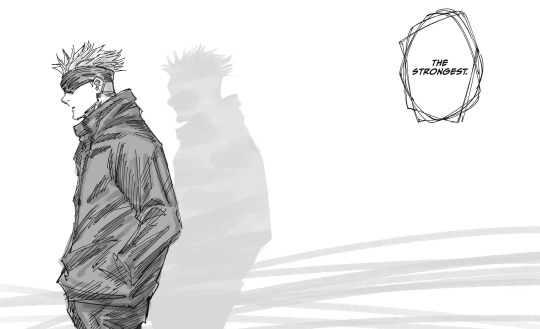
Thus, rather than having a ‘god complex’, I interpret Gojō as a character who struggles with his place in the world. His strength is what keeps him at a distance from the people around him — from the literal distance maintained by his technique to the metaphorical distance that separates him from the ‘unenlightened’.
Even the blindfold he wears to avoid discomfort hides his eyes, shutting off the ‘window to the soul’ and making him a less approachable figure. Thus, the thing that makes Gojō more comfortable around other human beings is ironically the thing that makes others less comfortable around him.
With the power at his disposal, Gojō is frightening at times, and Gege Akutami goes to great pains to show us the brutal potential of such strength — for example, in Shibuya when he ruthlessly dismantles 1000 transfigured humans with the precision of a machine in less than five minutes.
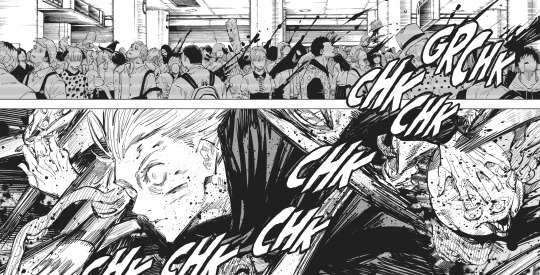
However, this display of violence comes off the back of Gojō’s most compassionate moment in which he bends the laws of jujutsu sorcery to preserve as many human lives as possible. Each time the curses attempt to force his hand, he does the inconceivable, even going so far as to limit his own strength by fighting without his technique to avoid collateral damage to humans caught up in the chaos.
Importantly, he doesn’t agonise over his decisions like the curses expect. Instead, when presented with a choice between two options that fundamentally violate his ideals, he forces another path without thinking. This is Gojō’s ‘overwhelming sense of self’. His commitment to upholding the ‘meaning’ he inherited from Getō is so unshakeable that it’s instinctive; so engrained that it’s unconscious.
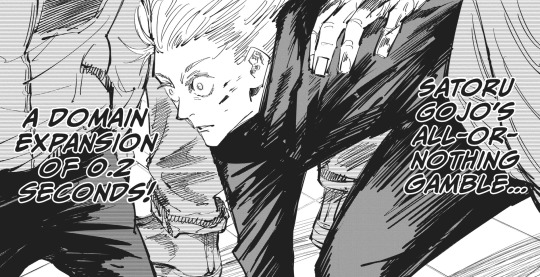
Despite his inhuman strength, Gojō’s actions in Shibuya exemplify his firm stance on the side of ordinary human beings. From his technique to his blindfold, he removes the physical barriers that separate him from the rest of humanity. The result is that, although his display of power in Shibuya is godlike, Gojō never seems more human.
Of course, it’s his humanity that ultimately makes him vulnerable to the Prison Realm, and many suggested that this ’weakness’ is why he would lose to Sukuna — a character who has wholly relinquished his humanity.
Humanity in opposition to strength
The unexpected appearance of his ‘best friend’ in Shibuya causes Gojō to falter for a heartbeat, but it’s long enough to make his brilliance look like foolishness in hindsight. His decision to save innocent people at B5F ultimately leads to the deaths of many thousands more over the course of October 31st and the following Culling Game. Among the casualties of the chaos are some of Gojō’s friends, colleagues, and students — as well as the Fushiguro siblings who were under Gojō’s personal care.
Of the Hidden Inventory arc, Nakamura Yūichi, Gojō’s voice actor said:
‘Even though Gojō had power, he failed his mission, he failed to protect Amanai, and he lost his best friend. He lost everything, and the only thing he succeeded at was awakening his abilities.’
So, it certainly seems true that Gojō’s choice to hold onto his humanity has brought him more losses than wins. In fact, at this point in the story, can we honestly say that Gojō has ever truly ‘won’?
Despite this, the characters in the series never stop thinking of Gojō as ‘the Strongest’. The narrative doesn’t ridicule him for his sentimentality in Shibuya, because it’s perfectly reasonable in the face of Kenjaku’s mind-boggling scheme. Even Sukuna recognises Gojō’s strength in the immediate aftermath of the event.
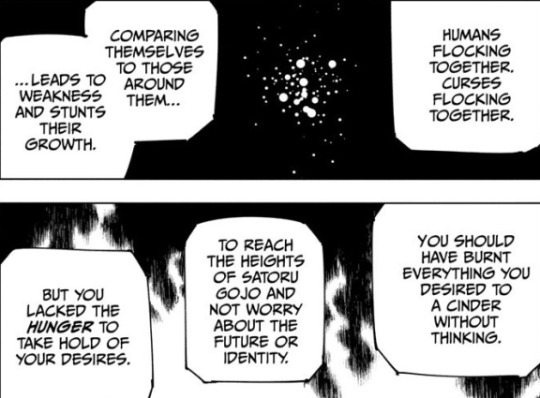
Aside from Kenjaku themselves — who has never suggested that Gojō is anything but immensely powerful — no one has ever criticised Gojō for his humanity. In fact, even prior to the Shinjuku Showdown arc, I’m not convinced that humanity is ever reliably situated in opposition to strength in Jujutsu Kaisen.
Many point to Uro Takako’s conversation with Okkotsu Yūta as evidence that tossing out one’s humanity is the only way to achieve ultimate strength. However, putting aside the fact that the translation warps Uro’s meaning somewhat, it’s unwise to assume that Sukuna’s is the only way to reach that level, simply because he’s the only example in history of a sorcerer with comparable strength to Gojō.
This is even more true when you take into consideration that everything about the context surrounding Uro’s assertion suggests otherwise. After all, this prideful, vicious sorcerer has just been beaten by a teenage boy who fights solely to protect the people he cares about.
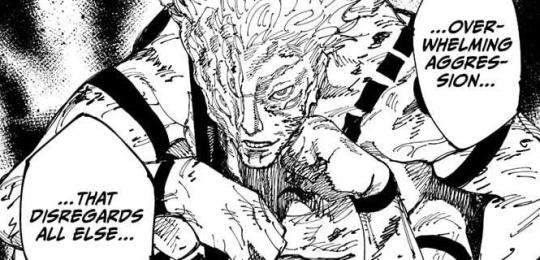
‘Overwhelming sense of self’ — the more accurate translation of the above panel — is about having absolute conviction in who you are as a person. The quality of your ideals is irrelevant as long as your commitment to them surpasses all else, and this has never been Gojō’s issue.
To say that Gojō’s humanity makes him weak misses the point, because it’s never been a question of strength. There’s no need to invent a weakness in the form of his humanity, because we already know his weakness — he told us himself.

Perhaps this starts to get at the the truth of ’the Strongest’ and the solitude that comes with ultimate strength. In Gojō’s own words, ‘When granted everything, you can't do anything.’ Despite being strong, he simply cannot save everyone. So, if being ‘the Strongest’ doesn’t help Gojō towards his goals, then what’s the point in his strength?
Of course, this is why Getō’s parting words hit Gojō so hard. When the boy who taught him that ‘protecting the weak’ is important tells Gojō that he has the power to commit the biggest act of genocide in history, the title of 'the Strongest’ is transformed from a blessing into a curse. I can’t imagine that Gojō ever feels more powerless than when he realises that he’s trying to save people using a body that’s built to destroy — a contradiction that’s illustrated to us in our first introduction (chronologically) to Gojō as a character.

If that wasn’t enough to cause an existential crisis for Gojō, Getō’s follow-up question guarantees it. In challenging Gojō’s assertion that Getō’s goals are impossible to achieve, Getō simultaneously questions Gojō’s identity beyond ‘the Strongest’, unintentionally (or perhaps intentionally) dehumanising Gojō by reducing him to his strength. This is especially painful coming from Getō of all people.
By the end of the conversation, Gojō’s entire worldview has been called into question by the person he trusted most. Getō, who always impressed upon Gojō the importance of meaning, leaves Gojō searching for the meaning in his strength — and, over 200 chapters after Getō asked the question, the answer still isn’t clear. This, I believe, is where the Shinjuku Showdown arc comes into play.
A reason to fight
From a narrative point of view, Getō isn’t entirely wrong to insinuate that Gojō lacks an identity beyond ‘the Strongest’. His primary role in the story has always been to act as a power ceiling from which the reader can extrapolate information about Gege Akutami’s world and its mechanics. Even his absence from the story is meticulously set up to illustrate the anarchy that breaks out due to the power vacuum he leaves behind.
Prior to the Shibuya Incident, Gojō Satoru’s overwhelming strength presented an obstacle to other characters’ growth. In order to create a more balanced playing field and an opportunity to explore creative techniques and fights on a previously unseen scale, it’s understandable that Akutami needed to get Gojō out of the way — at least until Sukuna could join the story as a fixed member of the cast.
As expected, even the strongest sorcerers we encountered during the Culling Game pale in comparison to the prowess on display during the Shinjuku Showdown. It all serves to show that Gojō and Sukuna are on an entirely different level — to the point that, even after Gojō burns out the part of his brain responsible for his domain, his strength still doesn’t dip below that of Okkotsu Yūta and Hakari Kinji.

To paraphrase Megumi, I shouldn’t try to find logic in a powerscaler’s behavioural patterns, but I can’t deny it’s immensely frustrating that week after week fans get caught up in arguments about who is the better sorcerer when it’s the least interesting thing about this fight.
The only reason ’the Strongest’ even existed as a neatly defined category up until this point was because of the lack of any viable opponent for Gojō. Now that he’s fighting someone on his level, comparing these two behemoths of jujutsu sorcery is the same as any other powerscaling exercise: reductive, vulnerable to bias, and ultimately missing the point.
Gege Akutami has never written a fight simply for the fun of seeing two characters go at it. There’s been a greater purpose behind every carefully created match-up in the series, either in the form of high stakes or an important lesson for the characters involved — or sometimes both.
While Akutami clearly enjoyed writing this back and forth between two masters of their craft, carefully balancing the scales to ensure that neither gained the upper-hand for too long, there is a great deal of character development staked on the outcome of this fight.
There are parallels between Gojō and Sukuna as characters but, more than anything, the Shinjuku Showdown arc has exposed some fundamental differences between the two — namely, why they fight in the first place. While it’s true that Gojō is fighting Sukuna partly because there’s no one else who can, it’s also true that the stakes have never been higher for Gojō. He has a lot to gain and a whole lot more to lose, so his reason for fighting feels tangible to the reader.
Conversely, Sukuna’s reason for fighting is considerably less clear. While we don’t know the nature of Sukuna’s binding vow with Kenjaku — or anything about his motivations in general — it doesn’t seem like there’s much at stake for Sukuna except for, perhaps, his pride. Beyond advancing the plot, this poses a lot of interesting questions about what Sukuna would have to gain from winning this fight.
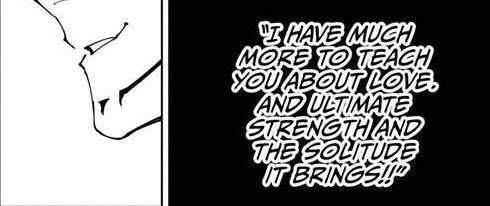
Since Gojō’s return, Sukuna has recalled Yorozu’s words about love multiple times. Their purpose — and Sukuna’s initial reaction to them — are still shrouded in mystery. However, through Gojō, we can learn something about ‘love’ and how it relates to the ‘the solitude of ultimate strength’.
Gojō never wanted to be ‘the Strongest’ alone. In fact, his entire motivation as a character is raising up ‘strong and intelligent allies’, constantly chasing the companionship he felt as one half of the strongest duo and trying to ensure that his students never feel the same isolation that’s plagued him and Getō before him.
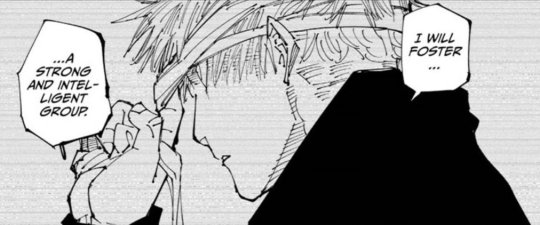
In the recent chapters of the manga, Gege Akutami has made it clear that Gojō isn’t really alone at all — Shōko reminiscing on their friendship in chapter 220; Gojō’s comrades rallying around him during the send off in chapter 222; the wonderful ‘my students are watching’ callback in chapter 230.
What’s more, for the first time in his adult life, we see Gojō — who’s famously in his element when he’s alone — start a fight with people at his side, leaning on three characters who we’ve previously been led to believe he looked down on.
The distance that’s always existed between Gojō and the people around him is closing. He has removed his mask and he is open to the world — the blindfold is gone; the shapeless, oversized jacket is gone; Gojō even removes his technique to let people in during his sendoff. Akutami makes it explicitly clear that Gojō’s allies have got his back, and he’s got theirs in turn — they’re his reason for fighting.

On the other hand, his opponent only has a single ally in all the world and, although Uraume is a devoted servant, there is no suggestion that they would tag in when the going gets tough. Sukuna has already told us that, for him, losing and dying are the same thing — a curious contrast to Gojō who does not put ‘winning’ and ‘dying’ in opposition, and this creates an interesting situation where both fighters could ‘win’ by their standards.
If Gojō saves the people he cares about (and the world at large) but dies in the process, he wins. Equally, if Sukuna is the sole survivor of the fight, he wins — but what would that actually mean for him?
One approach embodies overwhelming selfishness, the other embodies overwhelming selflessness, but only one of these approaches has been established as the most powerful form of binding vow in Jujutsu Kaisen. With all that said, many people believed that Gojō dying to win was the most likely conclusion to the fight — but that’s what a small fry would think!
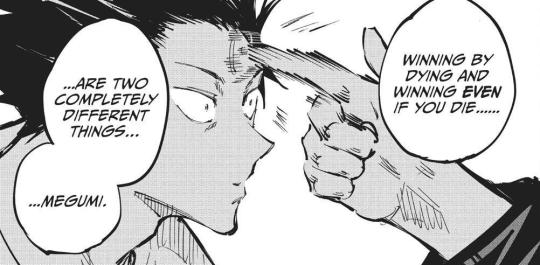
In Jujutsu Kaisen, it has always come down to one question: how much are you willing to risk — not sacrifice — in order to win? This is the lesson that Gojō impresses upon Megumi, and it’s why I was always in the camp that believed Gojō would win and survive. I didn’t expect his victory to be quite so clear cut, but it seems obvious in hindsight — and it’s all thanks to the power of love and friendship.
In chapter 234, Kusakabe suggests that Sukuna is keeping something in reserve, because he knows that if Gojō loses, he’ll immediately have to fight a number of other powerful sorcerers. Gojō knows that there are strong allies ready to back him up if he fails, so he can go all out.
Meanwhile, Sukuna is truly alone — to the point that he has to create allies in the form of shikigami in order to contend with Gojō. In the end, the explanation for Gojō’s victory is simple. Where Gojō gave it his best, Sukuna didn’t — and that was a grave underestimation of his opponent for which he paid the price.
So, the Shinjuku Showdown arc has come to an end and Gojō has reaffirmed that he is, in fact, 'the Strongest'. However, his story isn’t over yet, so what would a satisfying conclusion to his character arc look like?
Are you Gojō Satoru because you’re the Strongest?
Although Itadori Yūji is the main character of the series, Gojō Satoru is foundational to the story — despite how much Gege Akutami jokes about hating him. Gojō’s story is the thread that ties the series together, so landing the ending is crucial for completing not only Gojō’s character arc, but also that of many other characters. For Gojō, everything consistently comes back to Getō Suguru and Fushiguro Toji, but there remain unanswered questions regarding both.
Toji’s presence during the clash of the strongest sorcerers is too large to ignore. Aside from the allusions to Toji himself, his son plays a pivotal role in Gojō’s story as the human representation of gain through loss — the blessing born from Gojō’s curse. Taking Megumi under his wing marked Gojō’s first step towards a brighter future after the tragedy brought on by the failed Star Plasma Vessel mission, but there’s one major plot thread left unresolved.
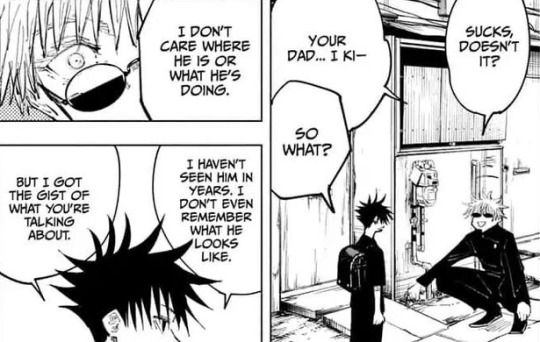
I wouldn’t have thought that Megumi learning the truth about his father was important after he dismisses Gojō’s attempt to tell him during the Hidden Inventory arc. However, the combination of Megumi’s interaction with Toji in Shibuya, his visible cluelessness when Tengen mentions Toji, and the numerous ways Gojō references Toji during the Shinjuku Showdown arc has convinced me that Akutami plans to follow this up at some point.
Right now, Megumi’s fate is still hanging in the balance. Although many people are waiting for something terrible to befall Gojō — losing his Six Eyes; burning out his technique permanently; dying — I’d like to believe that, if we look at Jujutsu Kaisen through a karmic lens, Gojō isn’t owed any more losses. At the very least, he certainly doesn’t have to die to progress the story as some people have suggested.
Our heroes, including Gojō himself, have been on a major losing streak for a long time now. Gojō being freed from the Prison Realm represented a shining beacon of hope at the lowest point in the series. To extinguish that light by killing Gojō almost immediately after he’s returned to the story would be another major blow to the characters and the readers.
I wouldn’t put it past Akutami to send some more pain our way before the end of the story, but if Gojō is going to die on December 24, I don’t think it’s before a number of other things happen.
If Gojō inherited Getō’s ideals in a symbolic ‘passing of the torch’, then his death before he has confirmed the safety of the people who depend on him is a depressing end to his best friend’s legacy. Additionally, up until now, Gojō has never had the opportunity to answer Getō’s question once and for all.
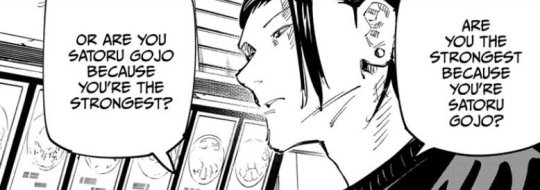
I would argue that Gojō has proven multiple times during the fight against Sukuna that he’s 'the Strongest' because he’s Gojō Satoru, but is he Gojō Satoru because he’s the strongest? He can’t discover that unless he experiences what it’s like not to be 'the Strongest' — either by losing his strength or by sharing the burden with the strong and intelligent allies he’s been raising for the entirety of his adult life.
Of course, there’s one more glaring thread to tie up, and it might be the most important of all when it comes to the completion of Gojō’s character arc. His first thought when he bursts out of the Prison Realm is a desire to lay Getō’s body to rest — a desire to rectify the mistake which threw the entire world into chaos.
As we’ve already discussed, despite his strength, Gojō has racked up a collection of costly failures. Thus, his entire character arc is about learning from the mistakes of his past. He’s taken every cruel loss that the universe has sent his way and, instead of lashing out with all that power at his disposal, he has grown from his experiences and chosen the path of ‘good’ time and time again.
If Gojō dies before retrieving Getō’s body from Kenjaku’s clutches, he has failed his best friend at the very last hurdle, and this would be a truly bleak way to end his story.
Concluding thoughts
At the conclusion of the Shinjuku Showdown arc, I’d like to see Gojō Satoru step back from the fight after inspiring hope in his students by delivering a final lesson in the form of his win. It is impossible to predict what Gege Akutami will do next, but I would like to see the reins handed back to the students for a while, as I feel Gojō has played his part against the King of Curses.
It is Sukuna, not Gojō, who presents the most interesting possibilities for character development after the conclusion of this fight. I am genuinely excited to see how he grapples with this loss that has the potential to challenge his entire view of himself and others. He disrespected Yorozu and treated his fight against her as a ‘test drive’, and thought he could get away with treating Gojō the same way. I think Ryōmen Sukuna might be about to learn some important lessons, and I would love to see him in conversation with Gojō before the latter bows out of the story.
Of course, we can always trust Gege Akutami to surprise us, and it’s entirely possible that the story will veer in a completely different direction than I expected. However, I have faith that he will deliver something profound, no matter what lies ahead.
---
*This is a very interesting concept in and of itself, especially in relation to the goal of the Culling Game, Yuki and Kenjaku’s battle of ideals (i.e. ‘breaking free from’ versus ��optimising’ cursed energy), Maki’s ‘enlightenment’ in the Sakurajima colony, and the understanding that true enlightenment lies in breaking free from all karma — both good and bad. After all, golden shackles are still shackles. Perhaps I’ll write about this another time.
#jujutsu kaisen#jjk#jjk 235#呪術廻戦#jjk meta#jjk analysis#jujutsu kaisen meta#jujutsu kaisen analysis#jjk spoilers#jjk manga spoilers#jujutsu kaisen spoilers#gojo satoru#sukuna#ryomen sukuna#fushiguro toji#fushiguro megumi#geto suguru#kenjaku#can you see why this took so long???#it's almost 6000 words 💀#and maybe it's all bullshit haha!!#but i'll hate myself if i wasted all that time for nothing#so enjoy i guess!!#my writing#fushiglow
203 notes
·
View notes
Text
Pick a Pile: A Message from the Universe

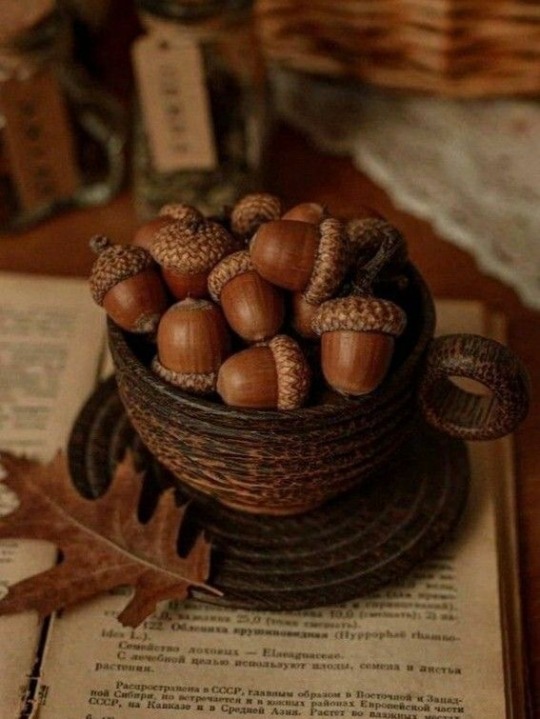

breathe in, breathe out and pick a picture that resonates with you. please take what resonates and leave what doesn’t. there is love in all of these messages. the tone here is gentle, like an older sibling, best friend, or parent scolding and motivating you at the same time. :)
pile 1 -> pile 2 -> pile 3
Did this resonate with you? If you’re reading this before Friday, October 13th: I’m doing a housewarming tarot game, to celebrate settling into my new blog space! I’ll be doing 3-cards spreads for five people! Want more details?
©️2023 cancersstellium. all rights reserved.
Pile 1
(crystals: black onyx and clear quartz | bottom of deck: six of cups. nostalgia isn’t just about longing or reminiscing about old times. it’s remembering too)
Maybe you feel like in your past there is a lack of a sense of justice. Maybe you didn’t get your due, that person didn’t get their punishment. But it’s coming. Karma cannot be dealt when your “peace” depends on it. The moment you stop worrying about their karma will be the moment that they receive it. Focus on your energy instead. There’s this beautiful, chaotic energy within you waiting, like a volcano waiting to erupt. There’s a reunion coming your way, later this month. Whether that’s with an another person, a part of your self, with the divine is left to be revealed. Whatever it may be: stay open to it, stay grateful, stay blessed. The major arcanum sun here is 6, The Lovers. There’s a duality here. One that requires love, faith, and sometimes a choice to leap blindly. It’s the roses with the thorns; it’s fire and water, a place for both exist; it’s want versus need versus true desire. Lean into this time. Breathe into this time. All of your relationships will be tested. All of your relationships will be challenged. All of your relationships will be upgraded. Trust the journey. Trust the process.
may resonate with: those born in december; cheetos, specifically the hot ones; animal lovers? something about cheetahs?
Pile 2
(crystal: pyrite | bottom of deck: temperance. peace and inner knowing)
Your’s reads more like a story and less like a message. There’s a wish here, a desire. And it seems like now is an auspicious time to get it. “So why haven’t I?” You ask. You planted the seed a while ago and you’re wondering why it hasn’t grown. You’re wondering if you just need to give it time, if you should pull it up and replant it, or just give up on it entirely. Perhaps you can’t see it, but there’s a sense of grief from the Universe in this, a “Why don’t you trust Me?” sense of exasperation. Rushing only results in poorer quality and things like this, can’t be rushed. Just know that all will be revealed in due time. But there’s a compassion here, for your struggle and an understanding that we use time as a measurement. I expect you’ll see some light shed on the situation very soon. The major arcanum sum here is 10, The Wheel of Fortune. There are higher forces at work here. Step aside. (Imagine a “road at work” sign here.) Be patient. Even. More. Patient.
may resonate with: leo suns + leo 1H placements, dolphin(s?) fans, hard workers, “just send me a sign”
Pile 3
(crystal: amethyst | bottom of deck: ace of wands reversed. you’re in your own way. lack of imagination. lack of creativity.)
“When the ‘why’ is strong, the ‘how’ is easy.” Meaning: when the reason behind something is clear, the how it comes about requires little effort on your part. Why are so obsessed with ‘how’ this will happen? Why are you so sure that because you cannot see a solution there must not be one? I ask this with love because I see all the major influences here. There’s a wholeness, there’s beauty, there’s great and beautiful change. The only obstacle in your path is you. And that’s okay! That’s something you can change. In order to get out of your own way, all you need to do is look inward. You already know what you want. Go back to what you knew just before it got complicated. Therein lies your answer. Maybe it felt scary but it’s not, just look one more time. Maybe it feels like the ground is shifting beneath your feet, but what is it that you’re standing on? Have you truly looked? Look again. You’ve come so far, you’ve changed so much. I see a reason to celebrate at the end of this. Feminine energy here. Being, creating, dancing, receiving. The major arcanum sum here is 4, The Emperor. Masculine energy. All it takes is a little organization, a little logic but not the “real world” kind.
may resonate with: “i just feel so alone”, aladdin, wedding tiktoks, jenga, uno (like the card game)
#🚪 the oracle next door#pick a pile#pick a picture#tarot reading#tarot#tarotblr#messages from the universe#spirituality#collective reading#message from the universe#🃏 divination#🃏 the oracle’s tarot— pick a pile readings
162 notes
·
View notes
Text
oh. hm. i wonder if dark made grimm by himself because light refused to participate in creating anything destructive again after the jabberwalker—certainly it seems telling that in the myth, light creates a vast monoculture lawn and then declares that dark’s contribution of a moon and new biomes and plate tectonics is “spoiling” it; the myth flows from light’s presentation of himself to ancient humans and if he saw any value in these things he would surely have claimed them as his own—and then there’s the brother-cult framing that humans were given the capacity for evil (destruction) and good (creation) and the free will to choose which path to walk, always with the underlying premise that if humankind chooses wrong then they will “destroy themselves” (by earning annihilation at the final judgment)
this is in stark contrast to the narrative treatment of destruction as hunger and as an agent of change, and creation-without-destruction as, well, a vast monoculture lawn. sterile, stagnant, artificial, unalive.
(<- not a euphemism for “dead” and i resent that the word has those connotations now.)
to create is to destroy; paint, for example, is destroyed by the act of painting. you can’t ever use it as paint again. eating a meal is destructive—both in the sense that something living has to be killed, whether plant or animal, and in the sense that the food itself is destroyed. but this is the basis of all life. one eats to stay alive, to grow.
so in light’s view grimm are evil abominations because his brother made them to be destructive; to dark the grimm are embodiments of natural forces whose churnings keep the world forever in motion and therefore alive. jabber came out wrong—brutal, but effective, the blacksmith says—because light’s misapprehension of destruction influenced his nature. the grimm, created by dark alone, turned out right.
are they good? are they bad? they just are. the tides, the mountains, the deserts, the storms, earthquakes and volcanoes, the grimm.
meanwhile humans were given destruction by darkness and creation by light—the separation and recombination into one being was probably necessary to avoid a repeat of what happened with jabber—and then taught, by light, to understand their natures as a moral conflict and a moral challenge to rise above ‘evil’, i.e. destruction.
this is, of course, why light is so set on the necessity of permanent death: in his afterlife the dead are unaware and unalive, existing in everlasting stasis, and so nothing can ever be destroyed. darkness, who has never feared destruction, allows salem to glimpse the truth that life and death are a circle. and then he burns it all down and leaves her alive in the ashes, the wellspring of primordial destruction there for her to do with it as she will. and she does, and that is how mankind returns to life and how the faunus come to be.
which is the whole point. the grimm represent and embody pure destruction, hunger and change, which the brothers’ humans were taught to abhor as unnatural, evil abominations. salem becomes grimm and in doing so stakes humanity’s claim on destruction as darkness understood it, rejecting the false moral dichotomy light imposed on her generation. remnant is set free, and humanity rises phoenix-like from the ashes, unbound by death.
the brothers’ humans rebelled in order to claim the powers of their creators and perfect their own design. and she did.
#thematically speaking i do think dark ascending after departure from the last world is#a lot more cogent than the idea he’s still around but separated from his brother#the moon—his creation—shattered by him. he was broken when he left; and salem had shared a piece of her heart with him#through her empathy with his loneliness. he realized he needed to go home#everything we know about how afterans ascend fits the pattern of dark’s character in the lost fable
56 notes
·
View notes
Text
Headcanon Crafts for Everyone I Missed Last Time:
Idril: a sculptor. She worked with every kind of stone imaginable, and often went looking for new material in Gondolin’s mines with Maeglin. (Look my Maeglin head canons are complicated but they should get to be friends the narrative has hurt them too much already) She actually preferred not to make elvish figures, instead focusing on strangely beautiful stone landscapes and various animal-like figures. She was actually responsible for Middle-Earth’s version of the gargoyle, having carved several to stand guard over Gondolin. Several elves swore that the statues moved, but she never addressed those rumors. She also liked to paint her work with bright colors, which would’ve been seen as odd back in Valinor, but fit right in in First Age Middle-Earth.
Maeglin: a smith, but his craft was more in-line with Avarin practice than Noldor practice; with much less focus on the idea of making gems and heavier focus on understanding natural geology and the properties of various gems and metals. He knew the mines of Gondolin better than anyone, and wrote plenty about the the earth under the earth. His work also had fairly significant Dwarfish influences. He liked to make mechanically complex pieces, with moving parts or even some internal gear work.
Finduilas: a hunter. Her and her father were both nature people, just in very different ways. She was silent, with all the grace of a dancer, and quick enough to outrun most of what she hunted. She preferred to go after more aggressive animals– wild boar, wolves, bears, even wargs– and leave the deer and rabbits be. She was born in Beleriand, and had never met the Valar, but sometimes, privately, offered up prayers to Orome. She liked to imagine she could’ve been in his hunt, if things had turned out a bit differently.
Celebrimbor: a smith, in the very traditional Noldor sense. Gemworker, specialized in jewelry, made various famously beautiful pieces, etc. Was never quite happy sticking to hairpins and necklaces. Longed to try his hand at imbuing his work with real power, but always talked himself out of it. A whole binder of concepts for works of power sat locked away in a chest in his workshop for centuries. He never talked to anyone about it. He was as ashamed of his feelings for his craft as he was of his feelings for his family. By the end of his life, he’d made peace with only one of those things.
Earendil: a mariner? Alright, he was definitely a mariner, and he loved the ship life– he even built a few boats of his own, in a similar fantastic style to Turgon’s architecture– but he also had a longstanding fascination with the natural world, and filled volumes and volumes of journals with information on various plants, animals, and minerals. But natural lore isn’t a recognized Noldor craft, since it involves learning but doesn’t really produce tangible results. Still, it was a passion he got from afternoons spent learning about geology with “Uncle Mole,” and one he shared with Elrond. Researching the beauty and wonder of nature gave Earendil something to do with his immortal life, and was a big part of the reason Elrond chose to be immortal at all.
Gil-Galad: a king. No, really, he’d been the high-king of the Noldor since he was a child, and hadn’t really had time for trivialities like “finding a life purpose” or “having fun.” He was too busy learning how to stay alive in late stage Beleriand (read: hell) and learning to rule the least cooperative group of elves imaginable. He wanted to be a painter, and while he found enough practice time to get good at his chosen craft; because of how long detailed paintings can take, he almost never had time to actually make anything. He tried not to let it bother him too much. He didn’t always succeed at that.
Elrond: in a bit of a weird spot. Elrond is most associated with lore and healing; but, as discussed, “lore” isn’t considered a craft. And, well. Healing had to be Elrond’s craft, right? He’d been doing it since he was seven, and just about the only person in Amon Ereb who could still use healing powers. And it was good work, and it was rewarding, even if it often left him feeling so burned out and worried that he forgot to eat or sleep. It took him a long time to admit to himself that healing for him was what fighting was to many other elves: a necessity. Truth be told, he’d rather be gardener, working with the earth to create a place of peace and beauty. Also, Elrond is basically a nature spirit. So. It was something he began to explore in the peace of the early Second Age. He found that his Ainuric powers had all sorts of interesting effects on plant life. He also learned how to breed new varieties of fruits, vegetables, and flowers. Still, he never really considered that it could be a proper craft for him. At least, not until he first saw the valley that would one day become Rivendell.
Headcanon Crafts for Finwe and his Children, the House of Feanor, the House of Fingolfin, and the House of Finarfin.
#silmarillion#silm headcanons#house of finwe#noldor#noldor crafts#idril#maeglin#finduilas#celebrimbor#earendil#gil galad#elrond#elrond peredhel#eldritch peredhel#I have feelings about elrond and gil galad#they had to grow up so fast#they deserve peace
97 notes
·
View notes
Text
His Sunflower

A/N: Chapter 2 and Sunni, btw, is based off my innocence/ignorance before... ahem... wattpad. YES I WAS A WATTPADER BUT IM A BETTER MAN NOW
CW/TW: Obsessive/possessive Coryo, implied possible SA, drugs, manipulation

Sunni was humming as she waited for her test results. She was watching her favorite anime, Tokyo Ghoul, and smiling every time Hideyoshi came on screen. She always considered herself to be a Hide kind of girl, always smiling and happy.
"Ms. Plinth?" Sunni looked up, turning her phone off and putting it in her pocket.
"Yes, Dean Highbottom?" She replied, sitting up.
"Welcome to Panem Academy. You aced your exam," the dean said, handing her the exam sheets back as a smile grew on her face. She beamed happily, taking the exam sheets back politely and shaking her new headmaster's hand.
"Thank you, sir," She replied before he shooed her off to the office to get her schedule. Sunni was squealing to herself as she made her way to get her schedule. She couldn't wait to see the look of excitement on Sejanus' face!
"Well, well, well," a sudden voice came, pulling Sunni out of her excited pace. "You must be Sejanus' Plinth's little cousin."
Sunni giggled, pushing her brown hair out her face as the newcomer called her Sejanus' little cousin. She wasn't little by any means.
"Well, I dunno about little, but yep, that's me!! Sunni Plinth," She introduced, extending her hand to the mystery man. "Spelt with an 'i' not a 'y'."
"Festus Creed," He introduced, taking her hand and bringing it up to his lips to gently kiss her knuckles. "It's a pleasure to meet such a beautiful woman."

During lunch, Sunni could be seen with Arachne Crane and Clemensia Dovecote, and Coriolanus didn't necessarily mind it because the girls were his "friends." What pissed him off, however, was seeing Festus being so close to her. Making her laugh and having her full attention made his blood boil, and yet... he had no idea why. He had just met her and had no knowledge of her aside from her being Sejanus' cousin.
"Hey, Coriolanus! Sej!" She called, waving him and Sejanus over. The two boys looked at each other, wondering what the fuck she was doing with people who would fully take advantage of her kindness, and joined her at the table.
"So how'd the test go?" Sejanus asked, taking a bite out of his sandwich while trying not to glare at Festus for having an arm around Sunni's shoulders in a very romantic way.
"I aced it!" She replied, beaming and pulling out her graded exam paper and sliding it over to Sej and Coryo.
"Oh me, oh my, looks like you'll have to fight for top spot, Snow," Arachne mocked, taking a sip of her drink as the blonde's eyes scanned the paper.
'Pretty, smart, and innocent as can be,' Coriolanus thought. 'I need to get her away from Festus.'
"Mm, perhaps," He mused in response to Arachne, popping a grape into his mouth.
"Well, whether you do or don't, I don't think fighting for top spot really matters," Sunni interjected, taking a sip of her soup from her silver spoon. "After all, we're all smart in our own way."
"Oh, sweet simple Sunni," Clemensia began, shaking her head. "You'll understand what Arachne means soon enough."
"We have to be smart in every way here. Otherwise, we drown in a sea of work," Festus added, taking a bite of out of his apple.
Sejanus were seething. He wanted to push Festus off Sunni and yell at him for being anywhere near her. Sunni didn't need his bad influence on her—she didn't need to get into drugs or have a forced first time with him. He would do everything in his power to keep them separated.
But Coriolanus? He was plotting. Plotting how to get rid of Festus and get Sunni to trust him. Yet he couldn't figure out why he wanted to protect the ball of sunshine who was named after a plant. He just felt like he had to. Like he needed to.
Glancing at each other, the two friends nodded curtly to each other. A silent vow to protect Sunni no matter to the cost.
Tags: @etfrin @hearts4court @snows-wife @delusionalbunni @kiraflowersworld @victory-scream0462 @curled-hair-red-lips @morallygrayboys @phoward89 @xoxo-eyeballs @thereeallink @graciouslyc @acidaciruela @wanda-maximoff-enthusiast @firstworldproblemthings @nowitsmissing
#coriolanus snow x reader#coriolanus x reader#coriolanus snow fanfiction#coriolanus imagine#coriolanus fanfiction#coriolanus snow#coriolanus snow smut#coriolanus x you#coriolanus smut#coryo#coryo smut#coryo x reader#coryolanus snow#coryo snow#coryo x reader smut#coryo x you#coryo x oc#the ballad of songbirds and snakes smut#the ballad of songbirds and snakes fanfiction#the ballad of songbirds and snakes#tbosas memes#thg tbosas#tbsosas#tbosas x reader#tbosbas#tbosas#festus creed#arache crane#clemensia dovecote#sejanus plinth
70 notes
·
View notes
Text
Maize is one of the world's most widely grown crops. It is used for both human and animal foods and holds great cultural significance, especially for indigenous peoples in the Americas. Yet despite its importance, the origins of the grain have been hotly debated for more than a century.
Now new research, published Dec. 1 in Science, shows that all modern maize descends from a hybrid created just over 5,000 years ago in central Mexico, thousands of years after the plant was first domesticated.
The work has implications both for improving one of the world's most important crops and for understanding how the histories of people and their crops influence each other.
Continue Reading.
107 notes
·
View notes
Text
Fungi are everywhere but they are easy to miss. They are inside you and around you. They sustain you and all that you depend on. As you read these words, fungi are changing the way that life happens, as they have done for more than a billion years. They are eating rock, making soil, digesting pollutants, nourishing and killing plants, surviving in space, inducing visions, producing food, making medicines, manipulating animal behavior, and influencing the composition of the Earth's atmosphere. Fungi provide a key to understanding the planet on which we live, and the ways that we think, feel, and behave. Yet they live their lives largely hidden from view, and over ninety percent of their species remain undocumented. The more we learn about fungi, the less makes sense without them.
Entangled Life by Merlin Sheldrake
#quote#entangled life#merlin sheldrake#literature#nature#ecology#fungus#mycology#original post#dark academia#light academia#green academia#fungi#mushrooms#earth
597 notes
·
View notes
Text
Consider this... The Nightmare of Apathy but Dreamswap
I'm kinda experiencing brainrot over Helios and Eos at the moment...
Dream is the one who rules over a world that is permanently day where everyone is happy and adores him. I imagine there would be sun worship but it's morphed into worshipping the deity that literally glows and makes everyone's life better.
Plant life flourishes and the climate is always comfortably warm. I don't think animal life would be much different with permanent sunlight but I'm not going to be putting thought into this right now lol.
Somehow, MC (probably named something vaguely related to the sun to have a nice parallel) meets Dream. Not sure how or why but it would either be transactional or a coincidence. Or maybe they have a "dark opposite" soul and Dream wants to "fix" them.
Dream and Nightmare still quarrel over the multiverse, although Dream has more influence thanks to time and positivity being easier to spread. Nightmare is gaining ground though which is rather concerning to Dream.
Nightmare forms his own team, not sure if it'd be the usual rabble or others. Without spoiling possible future plot points for TNA, there is a conflict between the brothers that leads Dream to forming his team. Again, possibly the usual rabble but it could be interesting if he "converts" bad guys to his cause.
I could go on but I will end up spoiling the finale to my fic... ಠ_ಠ
Or maybe it's like how Swapfell and Fellswap are similar but different? (Swapdream?)
Same premise as above, but Aylin is on Nightmare's side the whole time. ("Dark opposite" soul again?) I think this would be more like a desperate rebellion against a vast empire, except the rebels are technically the bad guys. So lots of angst and action scenes where they barely get out alive?
Aylin would meet Nightmare on more normal terms. He isn't a domineering lord but a pathetic outcast, hated by everyone because he only brings negativity when he's around. Or maybe his world is the one place his brother can't "taint" and while he's not loved by the populace, they understand all would be lost if he wasn't trying to maintain the balance. Maybe the economy is hyper focused on production for war efforts?
They'd get into a relationship much more quickly, especially after saving each other's lives a couple of times. Nightmare teaches her to fight, use magic, and possibly other skills he learned too. In turn, she teaches him what she knows as a herbalist and creates many valuable tonics and potions for conflict.
They pick up friends along the desperate, uphill, in the rain battle that is trying to re-establish emotional balance in the multiverse. Could be the usual rabble, although they'd probably have to rescue them from Dream's clutches first. Not sure if the boys would be more or less insane, especially if Dream was forcing them to be positive through magic.
The duo aren't loved by the majority of the multiverse and would likely run into many powerful players. Or maybe Dream hires bounty hunters to go after them. (Fresh might make sense here as he isn't a good guy and probably wouldn't appreciate Dream.)
The potential for a "happy" ending is very low and something drastic would have to occur for that to even happen. I would explain what but again, I'd literally spoil everything for TNA...
I think I like this idea much more than the previous one... (-_-;)
#raccoons rambles#no i'm not writing this anytime soon if ever#i got too many wips#tempted to write a oneshot for the second idea though#gonna have to ask if i can use helios and eos though#they're so cool!#or maybe i'll just use my own bois#no promises!#i just took a small break to stretch my writing muscles#on a roll at the moment with chapter 4#it's got like two sections left?#the nightmare of apathy#dreamswap
38 notes
·
View notes
Text
The melancholy love of the Yugi twins

I wonder why baby Tsukasa feels so rejected by Amane, hate is such a strong word especially for a child so young to have knowledge about her and believe that she is hated by someone she loves so much.
The love of twins is more intense than the love of ordinary brothers, there is a connection, a bond, born together and sharing the best and worst moments of life, discovering the world little by little, of course each of them in their own way. . It's like you were born with your best friend by your side. (Although unfortunately this is not always the case).
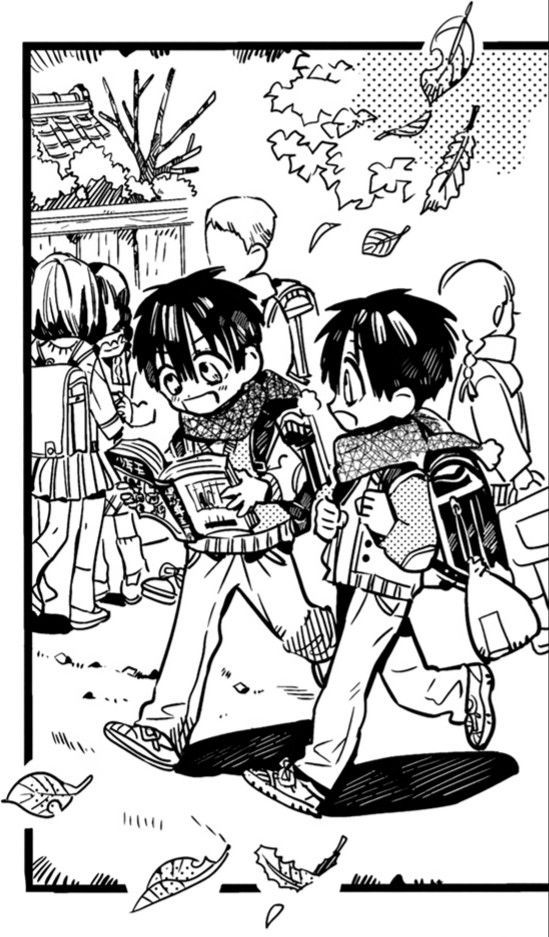
Their love transcends and surpasses death, "I will remember you as long as I breathe, no, beyond when I breathe"
A 4-year-old child who gives up her own life because her older twin will no longer be by her side, even though he tried so hard to give him the best he could, what does Amane like? I'll look for it, I'll give it to him! And the room was slowly filling up with toys, plants, animals and books that talked about the adventures of space, because Amane likes the stars, one day he will look for her and I want him to do it, even if I don't be here to see.
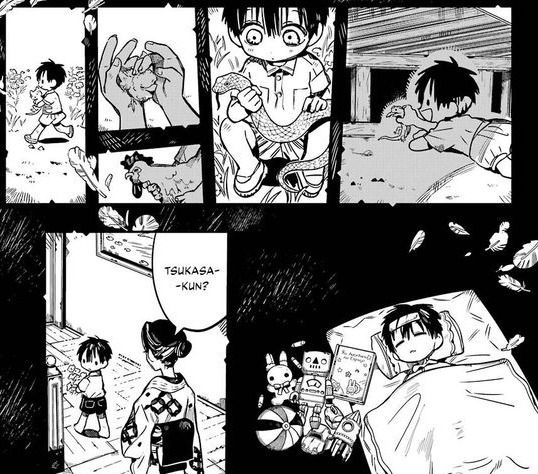
Seeing his brother in agony, always in bed, always so discouraged, he committed himself to changing that, he decided alone. And he did what he could, for such a small boy, his gestures were so tender, it's a shame he didn't realize something
Amane didn't want any of that, he wanted to be with Tsukasa.
Why did Tsukasa think he hated him? Just because Amane was sad and finally managed to say what he felt? That he wanted to be able to run and play around like him?
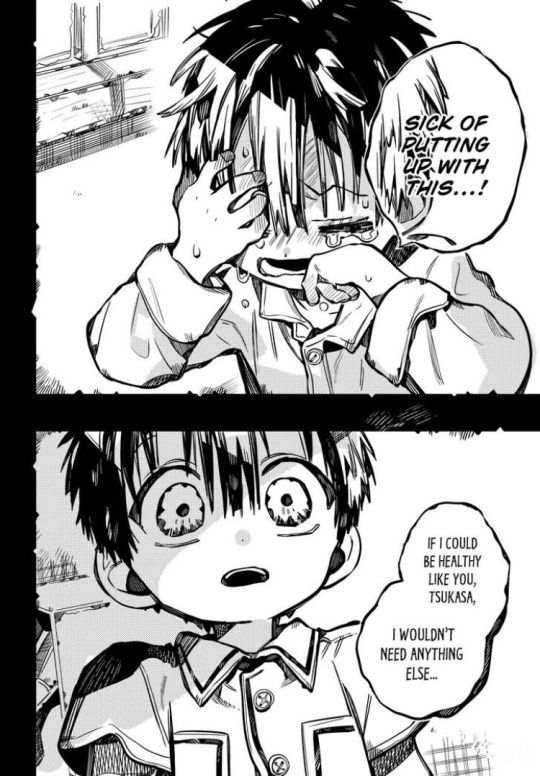
At what point did he feel so rejected by his brother that he decided it was okay to leave because Amane hated him, he would live happily without me. Why does such a little boy have to feel this way? Amane did her best to be with Tsukasa, whether reading the books he brought together, or being by his side even without having the strength to do so.

He felt that way… And he decided that he wanted to celebrate his birthday for the last time with his brother, he wanted to hear for the last time, even if it was perhaps the first, that his brother loved him. It was the last thing he wanted to hear before leaving, knowing for sure that he wouldn't come back.
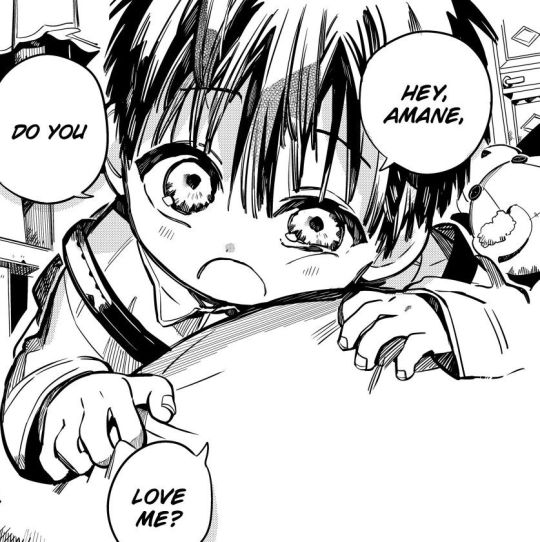
How could he be sure that his departure would be more of a relief than a pain? He couldn't, he was just a child who felt rejected and did the best he could to show Amane that he loved him, even if Amane never knew the sacrifice he made for him.
He wouldn't know.
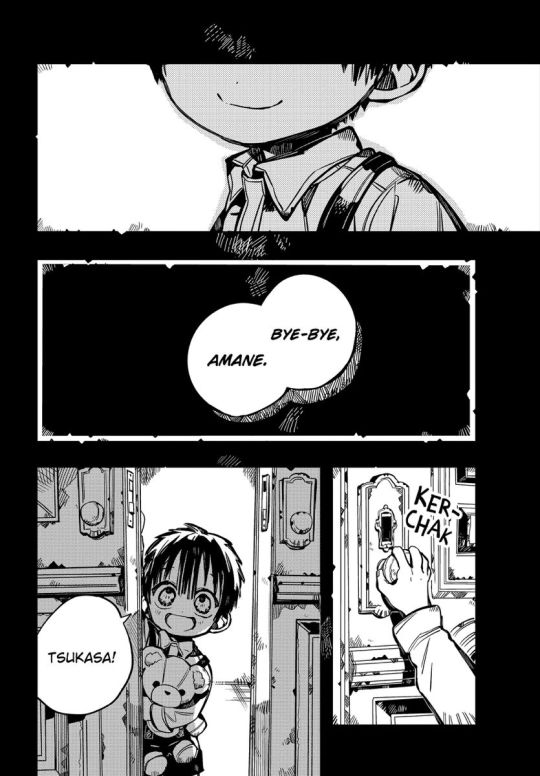
So, after making that choice he believed he had done the best, but then Nene and Kou appear and tell him that his older brother, the one he fought so hard to make happy, killed him and took his own life in followed.

It was there that Tsukasa received the first stab.
How could I? I did everything for him, I gave my life in exchange for his, and he took it from me again? Why?
Why?
Who was Amane truly? Did he really hate me?
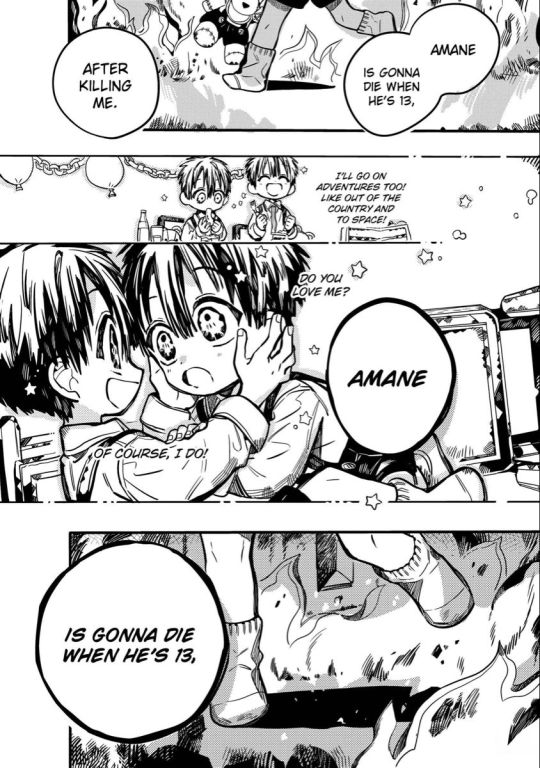
Maybe this gave him the certainty of the truth he wanted so badly to escape.. Amane hates me, but does he really hate me? What if I bring him his favorite ball? What if I give you a new book? Will he still hate me? Perhaps these were his thoughts.
Then suddenly
"Amane Yugi died at the age of 13 before killing his younger brother"
He really hates me. You don't kill someone you love, even Tsukasa knows that.
He came back, and he came back to understand Amane, he didn't come back because he believed he needed Tsukasa, or because he loved him, he came back understanding that his sacrifice had been in vain. And by that time, Tsukasa had already been influenced enough by that creature inside the house. A little boy who is discovering the world now, and whoever introduces him to this world is a monster who enjoys the lives of living creatures at his pleasure.
"Let's go back, I want to see how Amane is going to kill me"
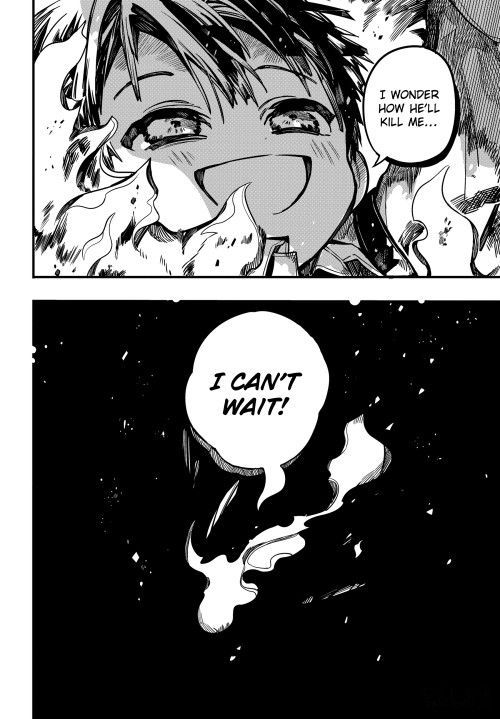
This phrase is more melancholic than disturbing, what many people say. A little boy who doesn't cry, but has strong resentments for the brother he fought so hard to have his love, and all he got was more rejection. The thing inside him just pushed him further and further, because maybe he was planning something and he clearly wanted to use the boy for it.
Then he comes back, but he's not the same anymore.
Who is Tsukasa now? He's still here, but why? He needs a reason to stay, to come back. He still wants to understand Amane, he still wants to feel loved by him.

There is no way of knowing what happened between them for a long time as it was not shown to us, but even though Tsukasa is sometimes so cruel, his innocence transcends. Because is it half Tsukasa who lives there, and the other half? Well, he doesn't have a name yet, but that other half is that monster that took him from his brother. He is always happy to meet Amane, hugs him whenever he can, and is still so tender with him sometimes.
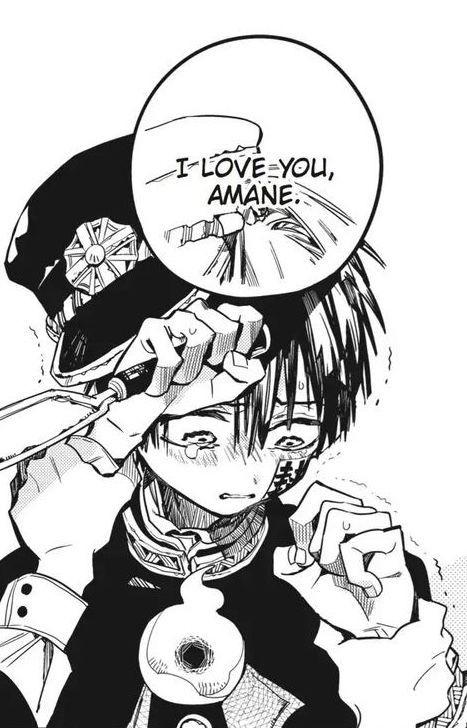

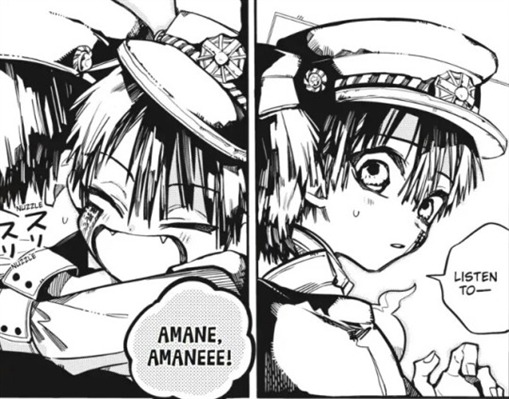
But does Amane think about Tsukasa?
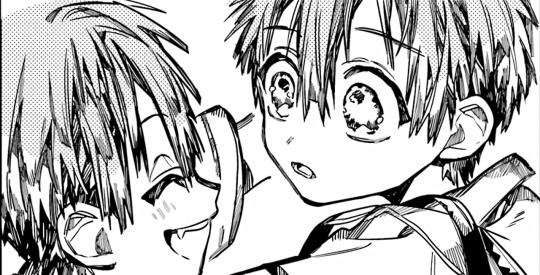
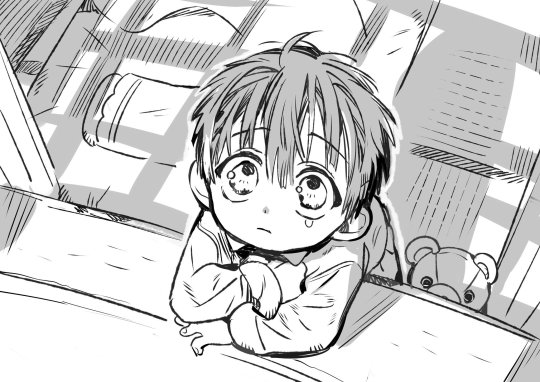
I tend to think that the Tsukasa with the seal is just his yorishiro, while the real one is that other one who appears to Nene every now and then, always with such a tender look. It's as if this is really that same little boy, he's there still looking out for his brother even after having gone through all this, still with that melancholy look.
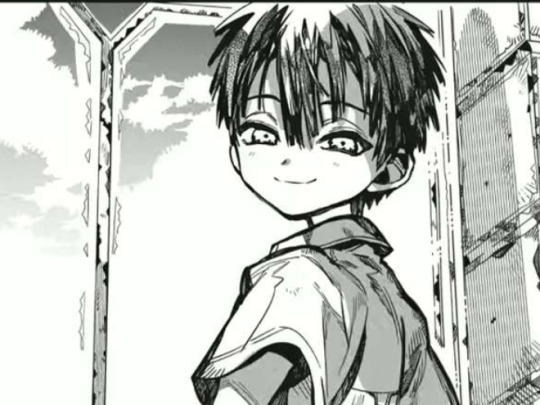

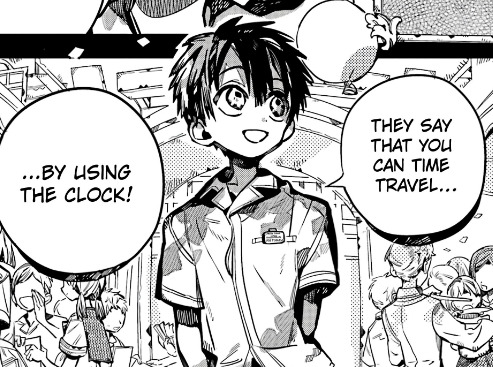
Tsukasa's love transcends, it is visible and palpable, he was not made to be the monster they force us to think he is, he became what he found necessary to be.
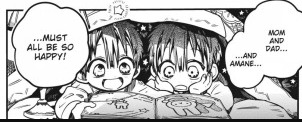
Who is the person who cares about Tsukasa?
Maybe, all he needs is just a hug from Amane and the truth he wants to hear
"I love you Tsukasa, I want you to stay because you are the most important person to me, even if everything is destroyed, I want you by my side, as it should be"
Because none of this would have happened if Tsukasa felt loved by Amane
"I can't sacrifice myself, because he will be unhappy without me, because he will sacrifice himself with me, I want Amane to live and be happy, if he is happy with me around , so I stay"
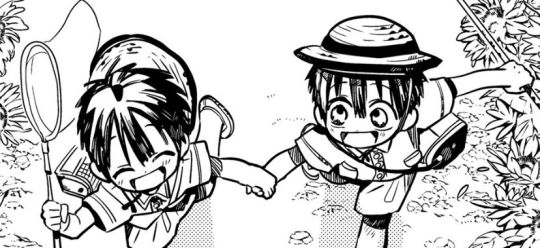
#jibaku shounen hanako kun#hanako kun#hanakokun#jshk#amane yugi#jshk spoilers#toilet bound hanako kun#yugi twins#aidairo#tbhk#tsukasa yugi#yugi tsukasa#hanako kun spoilers#tbhk hanako#jibaku shoujo hanako kun#yugi amane#hanako kun anime#jshk hanako
99 notes
·
View notes
Text
Pick an image: allow your intuition to guide you in your selection.
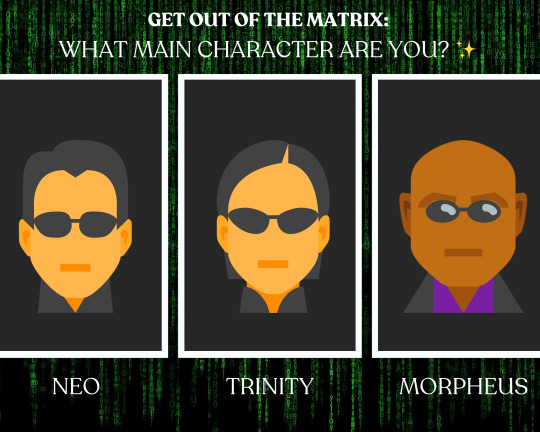
NEO 🕶️
[Superpowers:]
Patient, sees the bigger picture or different perspectives, inquisitive, hard-working, looks to long term goals or delayed gratification, adaptable
[How to use:]
These skills help you to see eye to eye with other individuals and species. I see someone who is caring and eager to understand how another maneuvers throughout their life. Where many would be fearful or judgmental, instead, you are curious.
You may be interested in marine biology, veterinary duties, care giving, or anything that allows you to study, interact, care for, or capture the beauty of life- whether it be plants, animals, humans, etc.
[Message:]
It seems like a dream you may have is put on hold due to financial concerns. It feels that a fixed mindset may be at the root of the issue. The message for you says that utilizing a growth mindset will bring you a lot closer to achievement.
(Click here for resource.)
————————————————————
TRINITY 🕶️
[Superpowers:]
Leader, has a good sense of direction, bold, initiative, innovative, independent, free-spirited, energetic, playful/fun, light-hearted, innocent
[How to use:]
These skills help you to travel or maneuver around situations that may be difficult. It seems like you have your own level of inner peace you are able to maintain by knowing when and how to go at things alone.
[Message:]
You are fully capable of capturing some sort of entrepreneurship or self employment opportunities. There may be some confusion amongst yourself or from outside voices with opinions about what you should do.
The message for you is to release the expectations of others and any you have placed on yourself that limit your options. This may look like going along with a loved one’s vision for you that you may not be passionate about. Whatever those expectations are, in releasing them, you give yourself permission to take a risk on your own idea that can make YOU happy and provide financial security.
Let go of the fear of failure, let go of the “what will they think”, let go of the thoughts that keep you from making any moves at all. Life is a journey of discovery- discovering what we like or don’t like. Even when we discover things we don’t like, that is information that brings us closer to knowing ourselves. Use your superpower of maintaining your inner peace to step away from negativity and simply discover yourself.
————————————————————
MORPHEUS 🕶️
[Superpowers:]
Intuitive, intelligent, thoughtful, truth seeking, assertive, advocate, wise, private or reflective (introverted), health conscious
[How to use:]
I see someone fit to be some sort of an educator, speaker, writer, influencer or advocate for a cause. The Star card shows me that you are passionate about freedom and peace.
Someone specific here may be interested in justice/law by advocating for people wrongly incarcerated.
Another specific person here may be interested in advocating for body acceptance and/or health related topics. Sharing your story can be powerful.
[Message:]
The truth speaks for itself. When you communicate, it is important to remove the ego. We can speak on what is true for us but, we cannot force anyone to believe anything. If what you say resonates with another, they will be interested in hearing more from you.
The message here says it is important to remove the ego because at times, it makes it hard for others to listen. Your messages may be powerful but they can only impact those who hear AND receive them. Let go of the need for others to hear and receive your messages WHEN and HOW you want them to. Remember, the truth speaks for itself.
*Readings are for entertainment purposes only.*
-// Blessings 🌺
#tarot#tarot reading#free tarot#free readings#free tarot reading#the matrix#neo#morpheus#pick a image#pick an image#pick a photo#pick a picture#pac reading#pick a reading#pick a pile reading#tarot reader#spiritual awakening#spiritual guidance#pick a pile#pick a deck reading#pick a deck#pick a card reading#pick a card#free reading#spiritualguidance#spirituality#self discovery#matrix movie#matrix resurrections#matrix reloaded
67 notes
·
View notes
Text
it's crazy how many influencers are like "I switched from veganism to an animal-based diet and now I eat nothing but liver and heavy cream and I feel better than I've ever felt in my life so if you think I'm still being 'restrictive' or 'unhealthy' you're just a HATER who doesn't understand my specific medical needs" and it's like well i don't think you're feeling better because you're eating animals i think you're feeling better because you're finally getting enough calories. like the fact that these people switch from one severely unbalanced diet to another shows that they know nothing at all about nutrition. of course your vegan diet made you feel bad but it wasn't because you were vegan it was because you're completely ignorant and don't know how to eat a balanced and nutritious diet regardless of if it's plant-based or animal-based because you base all your decisions on fad diets and the advice of quack nutritionists with no formal education or scientific research to back their claims. And if someone wants to live on eggs and beef liver that's their business but the fact that these people tell vulnerable audiences on social media to eat this way and promote the charlatan "professionals" giving them this "advice" is despicable. This is not a pro- or anti- vegan post this is a post saying hey regardless of your dietary needs you still need sufficient calories and nutritional balance in your meals and you shouldn't listen to people making grand pseudoscientific claims about health
#i said i wouldn't post this thought on tumblr. oh well#sorry for talking about influencer drama i saw the slay queen comments on liz seiberts response to abby sharpe and it made me livid
119 notes
·
View notes
Text
Cabins & Powers - Percy Jackson dr


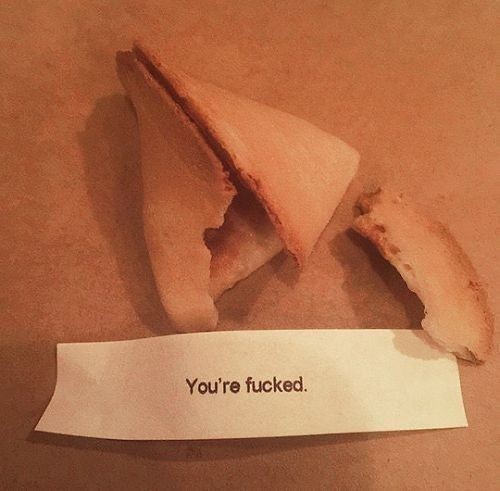


These cabins aren't in order so please don't yell at me. Hestia is the #1 cabin tho.
Hestia - Induce serenity, the ability to conjure up food, doesn't get burned by fire
Zeus - Electrokinesis, nephelokinesis (clouds), ornithokinesis, can sense/predict the weather, whatever else Thalia or Jason can do
Hera - unknown cause she's childless with her bitch ass 🖕🏾
Poseidon (his name is spelled weird) - y'all know what the fuck is going on. Percy mf Jackson already made sure y'all know. Big waves big motion 🌊
Hades - Y'all know how Nico gets down. (This is me saying that he has a lot of powers and I wasn't able to script all that shit. I'm only just a girl)
Athena - Annabeth made sure you know what the Athena kids got. They hardly had anything good on fandom. Com so I just scripted capable to see through owls or serpents eyes and audiokinesis.
Ares - Control over weapons, can summon armor at will, Necromancy (limited to death to warfare), communicate with pigs/boars and vultures, can adapt to fighting styles faster then most Half-Bloods
Apollo - can touch a person and know their body is in (can use this to know their heart rate or blood type), can sing greek songs to inflict pain (depending on the song different things happen), can curse people to rhyme or constantly singing, can create shock waves, heliokinesis, can tell what certain light waves are, great healers, heal faster than most half-bloods
Demeter - Chlorokinesis, immune to poisonous plants, limited control over the climate, control over framing tools (kinda a boring power till they got a bronze rake), control over dead animals bones (Dinosaurs, mammoths, and dodo birds)
Hermes - Can steal anything without getting caught, faster than most Half-bloods, can sense traps, can understand all languages, can talk to snakes
Hephaestus - Technokinesis, pyrokinesis (rare(😏)), can create anything, manipulate smoke
Artemis - those hunters can beat your ass
Aphrodite - Can control make-up, perfume, clothing, and jewelry, can influence the feeling of love. can change hair color and eye color, can communicate with doves, geese, ducks, dolphins, and swans, (very rare) charm speak, enhanced eyesight and hearing
Dionysus - Can make alcohol out of nothing, can control vines and orchards, can control tigers and panthers
Hecate - Mystiokinesis, can make an animal their familiar, communicate with crows and ravens, can enchant objects
Iris - Have the ability to conjure a large orb made of pure rainbows around an opponent. The orb would successfully imprison an opponent for a short time. The orb is quite durable, but could be broken through with sufficient force. The orb cannot be teleported out of. The target cannot be attacked while the orb is in place, so the power is purely defensive. (Limited), can manifest wings, have the ability to focus an intense beam of prismatic light which will burn anything it touches, can use rainbows to show them directions, and can generate rainbows and colors.
Hypnos - Can induce sleep on anyone, manipulate dreams, can wake themselves up at will, cure insomnia
Nemesis - Can summon vengeful spirits to aid, can tell when someone's cheating, combat style mimicry, can bounce back power attacks, can see someone's weak spot
Nike - superspeed, can summon Nikes warriors, control Kinetic energy
Achlys - Can sense and follow poison, can make poison, immune by posion, can breath out poisonous gas
Aeolus - Control wind, can hold their breath for long periods of time, can hear anything the wind carries, can use the air to slice things
Hebe - Can curse people/things to age backwards or forwards for a limited time, can make ambrosia out of nothing.
Tyche - Universal luck
Aetna - Can turns things to stone. Must be touching it (Limited. Only last for about 30 minutes but the stronger the being less amount of time). Have Ash Manipulation or the user can generate and manipulate ash, defined as the solid remains of fires which, as already burnt matter, cannot be burned again. Can generate and manipulate liquid fire.

As you can see I might have gone overboard. Tyche children are the only ones with only one power cause I got lazy.
Master list
#pjo dr#pjo shifting#percy jackson dr#percy jackson shifting#shifting#shifting realities#reality shifting#reality shift#desired reality#shifter#black shifters#shifting community#shiftblr#shifting to pjo
32 notes
·
View notes
Text
Some Isabela headcanons because it's her birthday!
She was a rambunctious child, always getting into mud and tracking it everywhere or jumping off of things she shouldn't. She definitely gave all the adults heart attacks more than once.
Her favorite animal is flying squirrels. As soon as she learned about them, she was obsessed. She has a stuffed flying squirrel that her mama made her.
She has always loved plants and as soon as she could talk, she would talk to the plants.
Her favorite flower growing up changed a lot. She loved roses once Alma started to influence her, but secretly, it was because they had thorns as well as beauty-attesting to her inner firy personality she had to constrain. After Casita fell, her favorites were the carnivorous ones like sundew or the spiney cactus plants.
Her favorite person to talk to while growing up was Pepa. They have a bond and understand how much it can hurt to lock away your true self for the benefit of others.
I think she might enjoy playing the drums.
She's very artistic and used to paint with Bruno as a little girl. She brings some art stuff over to him as an ice breaker when she's ready to get to know him again after Casita fell.
Happy Birthday Isabela 🌵
91 notes
·
View notes
Text

Title: Nature Vs. Natue
Suggested Reading
! - Highly Recommended
Researching Witchcraft
Herbology !
Introduction to Gnosis !
Fundamentals of Energy Work
The Path of Least Resistance !
Finding Balance !
Spell Design !
Spell Dictation
Spellcasting Basics
Introduction
Witchcraft, often understood as a practice interwoven with the natural world, exhibits a profound connection to various definitions of "nature." Two predominant conceptualizations of "nature" come to the fore when analyzing this intricate bond: one rooted in the tangible external environment, replete with diverse fauna and flora, and the other abstractly referring to the overarching laws governing the cosmos.
Nature as Fauna and Flora
In many cultural traditions, nature, delineated as the external world filled with myriad species of land, sky, plants, and animals, plays an integral role in the practice of witchcraft. This view accentuates the symbiotic relationship between the practitioner and their environment. Indigenous practices, for instance, often emphasize the importance of respecting the land, understanding the medicinal properties of herbs, and acknowledging the spirits of animals. From this perspective, nature is not a mere backdrop but an active participant, facilitating the rituals and spells that constitute witchcraft.
Moreover, the reciprocity between humans and the natural world underscores the idea that every action has a consequence, a fundamental tenet in various witchcraft traditions. Plants, for example, might be harvested for their medicinal or magical properties, but there's an implicit understanding of the necessity of sustainable harvesting and giving back to the land; or conversely, consuming a plant that is poisonous.
Nature as Cosmic Laws
A more precise understanding of "nature" pertains to the laws that regulate the aggregate being of the universe. These are known as the inviolable principles governing the operations of the cosmos. In the context of witchcraft, recognizing and aligning oneself with these universal principles is paramount. By doing so, a practitioner might better navigate the complexities of existence, deriving insights and gaining an enhanced ability to influence their circumstances within the boundaries set by these cosmic laws.
Nature's Significance in Witchcraft
The dual interpretations of "nature" elucidate the depth of their connection to witchcraft. On one hand, the palpable surroundings with its environments untouched by man, provides both the tools and the context for the craft, emphasizing symbiosis and respect. On the other, the more abstract understanding invites practitioners to delve deeper, contemplating the foundational principles that weave the fabric of reality itself. Together, these conceptions of nature serve as pillars that uphold the conceptualization of witchcraft, anchoring it in both the tangible world and the vast expanse of the universe.

Nature in Witchcraft: Exploring the External Natural World
Witchcraft, an umbrella term for diverse practices commonly rooted in the rhythms of the natural world, encapsulates varying traditions that venerate the Earth and its abundant life forms. By examining Green Witchcraft and Animism, we gain a comprehensive understanding of the profound nexus between witchcraft and nature. Green Witchcraft does not perceive nature as a mere assemblage of resources to be used and discarded. Instead, nature is deemed a living, breathing entity that sustains life and fosters interconnectedness. Practitioners of this craft often align their practices with the cycles of the moon, the changing seasons, and the transitions of day and night. They understand that nature pulses with life, and by attuning themselves to these rhythms, they harmonize their actions and beliefs with the world around them. This alignment provides a framework for them to develop rituals, spells, and practices that respect and honor the Earth's vitality.
Reverence for Plants, Animals, and Landscapes
Green witches hold an intrinsic appreciation for the myriad life forms with which they share the planet. Plants, whether towering trees or humble herbs, are viewed as powerful allies with distinct properties that can be harnessed for both medicinal and magical purposes. Animals, too, play a pivotal role, with many Green witches recognizing the significance of animal guides, familiars, icons, or totems in their practice. Various landscapes, be they serene woodlands, expensive deserts, or rugged coastlines, are also revered for their unique energies and contributions to the global ecosystem. For Green witches, every component of nature, animate or inanimate, deserves respect and is approached with a sense of humility and gratitude.
Animism
Animism, while not exclusive to witchcraft, offers invaluable insights into the profound spiritual connections between humans and the natural world. At its core, animism posits that all things, whether organic or inorganic, possess a spirit and intrinsic worth. This syncretic belief system holds that everything, from the grandest mountain to the smallest pebble, has a spirit or energy. Such a perspective invites a profound sense of wonder and reverence for the world, as one recognizes the multitude of spirits and energies that coexist alongside humanity. Animistic beliefs underscore the interconnectedness of all things and challenge the anthropocentric view that humans hold dominion over nature.
Recognition of the Divine Presence in Nature
Animism also postulates the ubiquity of the divine in the natural world. This doesn't merely refer to lofty deities overseeing creation from a distance; it's about the imminent divinity in the rustling leaves, the flowing rivers, and the chirping birds. By acknowledging this divine essence, practitioners can cultivate a deeper, more meaningful relationship with their surroundings, treating every interaction with nature as a sacred encounter.

Nature as the Laws of the Universe
The universe is woven with threads of both observable phenomena and more elusive principles. These fundamental laws, which transcend much physical observation, provide a blueprint for understanding existence. When viewing witchcraft through this lens, it becomes apparent that these universal tenets are paramount to a practitioner's understanding and execution of their craft. By juxtaposing these principles with science, technology, engineering, and mathematics (STEM), we uncover a harmonious fusion, bridging mystical practices with modern knowledge.
Understanding Metaphysical Principles
Metaphysics, a branch of philosophy, grapples with questions about existence, reality, and the nature of the universe that often elude empirical observation. These principles serve as the bedrock for many spiritual and mystical traditions, including witchcraft. By acknowledging these universal laws, a practitioner can align their craft with the rhythm of existence. It's akin to understanding the ebb and flow of the tides; by recognizing the currents, one can navigate more effectively. In essence, these metaphysical perspectives guide how energy, transformation, and change could operate in the universe.
Gnosis
Gnosis, derived from the Greek word for "knowledge," is typically a term meaning mystical understanding and personal revelation. It's not mere bookish knowledge but an experiential comprehension of universal truths.
At its core, gnosis seeks a profound connection with the universe, transcending the limitations of conventional perception. Through introspection, meditation, and various other practices, individuals endeavor to attain a heightened state of awareness, shedding layers of superficial understanding to grasp the profound depths of reality within a desired scope of reference.
It is through a state of gnosis that the foundational concepts of various applications of STEM are truly utilized. When entering the headspace for a working, if the conceptual understandings of related physical laws are present in your mind- the efficacy of the spell increases dramatically.
Gaining Insight into the Laws and Workings of the Universe
The pursuit of gnosis is not merely for personal edification; it can also be a tool in a quest to comprehend the intricacies of the universe. By employing this tool, practitioners can align their actions and practices with these cosmic principles, ensuring that their craft resonates harmoniously with the natural order. Achieving a state of gnosis often requires transcending the bounds of normalized daily consciousness. Through practices like meditation, rhythmic drumming, or even dance or walking, an individual might enter a trance state, allowing for complete focus on a specific concept, which can gradually be used in unlocking deeper layers of understanding and facilitating a more direct connection with the universe's laws.
Application of STEM Concepts in Witchcraft
While witchcraft taps into metaphysical principles and energies, it doesn't operate in a vacuum. The physical laws of the universe, modeled by the disciplines of STEM, still apply. For instance, a spell might facilitate healing or protection, but it cannot violate conservation of energy or other fundamental scientific tenets.

Combining Concepts of Nature & Nature
By melding the tangible aspects of nature, such as plants and animals, with the abstract laws of the universe, a holistic understanding of witchcraft emerges. This synthesis bridges the gap between witchcraft and STEM, showing that they're not at odds but rather two facets of the same gem. For instance, understanding the chemical properties of a herb, its ecological role, and its metaphysical significance or energetic properties can enrich a ritual or spell, making it more potent and efficient.
Utilizing STEM to Find the Path of Least Resistance and Means of Manifestation for Spellwork
STEM offers tools and methodologies to streamline and enhance witchcraft practices. By understanding physical laws, practitioners can identify the most efficient and effective ways to channel energies. For instance, if one were to craft a salve, understanding the chemical reactions involved, the energetic properties of the ingredients, and the optimal conditions for emulsion could potentiate the concoction's effectiveness. This integration ensures that spellwork is not only spiritually resonant but also optimized within the boundaries set by science.
This nexus between nature's tangible expressions and its underlying laws provides a comprehensive framework for understanding and practicing witchcraft. By integrating metaphysical insights with STEM knowledge, a harmonious and potent fusion emerges, positioning witchcraft not as an antiquated relic but as a dynamic practice intertwined with both ancient wisdom and modern understanding.
Integration and Practice
A nuanced approach to witchcraft embraces both the tangible resources our Earth generously offers and the intricate principles that govern the universe. By harmoniously integrating these facets, practitioners can cultivate a potent and authentic practice. This interplay is distinctly evident when examining Green Witchcraft, Kitchen Magic, and the alignment with universal laws.

Green Witchcraft and Kitchen Magic
At the forefront of Green Witchcraft and Kitchen Magic is the utilization of natural elements. Here, the emphasis is not on classical elements like fire or air, but rather on tangible materials, including herbs, stones, and water. For instance, a Green Witch might incorporate rosemary, known for its protective qualities, in a spell, while someone practicing Kitchen Magic might bake a loaf of bread, infusing it with specific energies through each kneading motion. This palpable connection to the environment ensures that the rituals and spells remain grounded and potent.
Going Beyond Correspondences in Green & Kitchen Magic
While it's common to associate specific attributes to various natural elements, Green Witchcraft and Kitchen Magic should transcend mere symbolic associations. Instead of merely linking, say, lavender with peace because of a traditional correspondence, a practitioner might delve deeper, researching its energetic properties, botanical properties, ecological roles, and historical uses. This encompassing approach enhances the depth and efficacy of the spellwork, rooting it not just in symbolic representation but in genuine understanding and connection, which allows for more than a psychological or physiological effect.

Aligning with the Laws of the Universe
To view the vast expanse of existence and harness its potential, it's imperative to align one's practices with the fundamental laws of the universe. This doesn't merely pertain to abiding by these principles, but actively synergizing with them. It's about recognizing the ebb and flow of energy and entropy and discerning the most opportune moments to conduct rituals or cast spells.
Designing Spells that Work Within the Confines of Natural Laws
Creating a spell is akin to formulating a hypothesis in science. It requires precision, understanding, and respect for the boundaries set by nature. To ensure that a spell is efficacious, it must be designed to operate within the confines of natural laws. This might mean acknowledging the limitations of what can be achieved, but it also ensures that the energies harnessed are potent and resonant. For example, instead of attempting to counteract a natural phenomenon, one might seek to harmonize with it, creating a balance that benefits both the practitioner and the environment.
This post contains all of my articles!

Patreon Shoutouts!
Meegs
Jinsu
Cosmicaquamarine
Those who support me on Patreon, had access to this article two weeks in advance! If you're considering supporting me, see more details.
This articles was reviewed & edited by ChatGTP.
55 notes
·
View notes
Note
What subjects are actually taught at the academy? I've heard of recreational mathematics, thermodynamics, and touch telepathy, but what other courses are there?
What subjects do young Gallifreyans and Time Lords learn?
For once, we can be very very detailed about this!
🔬 Fundamental and Advanced Sciences
Quantum Mechanics: Introduced early in Gallifreyan education, this subject uses multidimensional geometry to solve complex problems, exploring the interplay between abstract concepts and physical realities.
Thermodynamics: This subject explores the principles of energy conversion between heat and other forms of energy, crucial for understanding the energetic dynamics of time-travel technology.
Cybernetics: Focuses on the study and construction of systems with regulatory functions, integrating technological and biological processes for the creation and maintenance of cybernetic beings and advanced machinery.
Matrix Diagnostics: Covers the techniques and tools used for diagnosing and maintaining the Matrix, a vast repository of Time Lord knowledge and consciousness. [See: How does the Matrix work?]
⏲️ Specialised Temporal Studies
Basic Temporal Theory: Introduces the concepts of time and its properties, laying the groundwork for more advanced temporal manipulation studies.
Advanced Temporal Theory: Offered to students with intellectual perseverance, diving deeper into complex temporal phenomena and manipulation techniques.
Temporal Engineering: Encompasses engineering principles to temporal mechanics, essential for practical time manipulation.
TT Capsule Construction and Design: Focuses on the design and construction techniques specific to Time Travel Capsules, integrating advanced dimensional engineering and Veteran and Vintage Timeships.
TT Capsule Operation and Maintenance: Includes Space-Time Navigation, covering the operational aspects and routine maintenance of TARDISes.
Engineering Theory: The study of spaceship construction in general from different cultures.
Stellar Engineering and Cosmic Science: Deals with the manipulation and understanding of cosmic phenomena.
Dimensional Science: Studies the properties and manipulation of various dimensions beyond the standard three-dimensional space.
Dimensional Engineering: Applies engineering principles to manipulate and control various dimensions for practical uses.
Spatial Cartography: Teaches the mapping of space and the intricate layers of multiple dimensions.
Temporal Protocol and The Laws of Time: Ensures that all actions taken by Time Lords are in accordance with Gallifreyan law and temporal ethics.
Temporal Classics: Studies classic temporal theories and their applications through history.
🧠 Psychic and Telepathic Disciplines
Touch Telepathy: Teaches advanced communication techniques using innate psychic abilities.
Telepathic Defence: Includes mind-shielding techniques to protect students from psychic intrusions.
Psychic Field Manipulation: Standard training that covers manipulating one's psychic environment, including the science of Temporal Stasis.
🎨 Arts and General Studies
Super-logic: A complex form of logic used to solve problems that are beyond traditional logical frameworks.
Recreational Mathematics: This probably includes the study of happy prime numbers and other 'fun' maths (is there such a thing?), blending leisure with learning.
Art: Covers various forms of Gallifreyan art, including the creation and study of stasis cube art.
Gallifreyan History: Covers Gallifrey's past, including studying cosmic influences like those of the Assyrians.
Future History: Involves the study of fixed points in history, such as the Cro-magnon period on Earth.
Vector Justice: Teaches the principles of fairness and justice as practised by the ancient organisation known as the Vectors.
Botany and Biology: This field covers the study of Gallifreyan and alien plant and animal life, incorporating advanced biophysical studies.
Medicine: Includes tri-bio-physics and other medical sciences.
Languages: Teaches the linguistic skills necessary to communicate across thousands of different languages.
Music: Explores musical theory and practice, including the traditional harp lessons.
Detachment and Physical Inactivity: Focuses on mental and physical disciplines required to maintain objectivity and calm in all situations.
📚 The Culture of Learning
The Academy isn't just about academic achievement but also about instilling a deep-seated ethos of service and responsibility towards time and the wider universe. It's complemented by:
The Codex of Disciplines: A guide to the ethical and practical aspects of time travel and interaction with both time and the multitude of species across the universe.
Competitive and Collaborative Learning: From zero-gravity hyperball teams to Academy Sprint Championships, Time Lords are encouraged to excel in both individual and team endeavours.
Hope that helped! 😃
-------------------------------------------------------
》📫Got a question / submission?
》😆Jokes |🫀Biology |🗨️Language |🕰️Throwbacks |🤓Facts
》📚Complete list of Q+A
》📜Masterpost
If you like what GIL does, please consider buying a coffee or tipping below to help make future projects, including complete biology and language guides.
#doctor who#gil#gallifrey institute for learning#dr who#dw eu#gallifrey#gallifreyans#ask answered#whoniverse
24 notes
·
View notes